Olympic Games are the most important international athletic competition in the world. The Olympics bring together thousands of the world’s finest athletes to compete against one another in a variety of individual and team sports. Millions of people have attended the games, and billions of people throughout the world watch the Olympics on television.
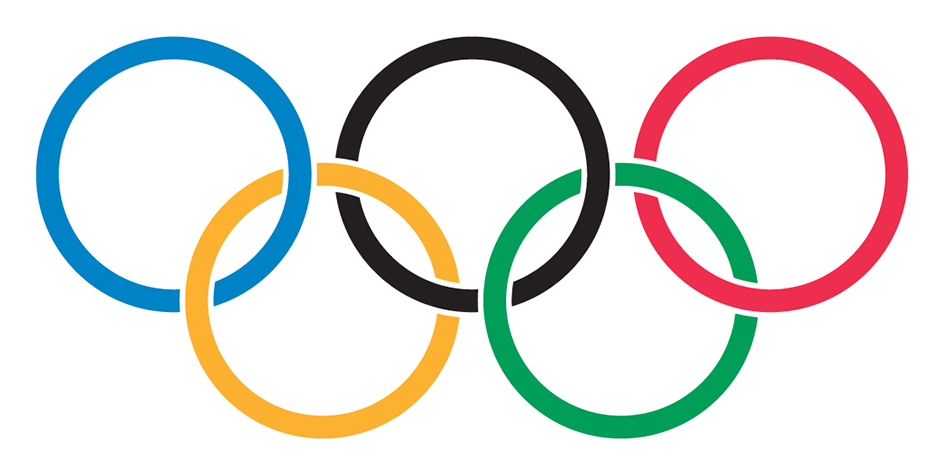
The Olympic Games originated in ancient Greece and were held from 776 B.C. to A.D. 393. The modern games began in 1896. The organizers revived the games to encourage world peace and friendship and to promote healthy sporting competition for the youth of the world.
The Olympic Games consist of the Summer Games and the Winter Games. From 1896 to 1992, the Olympics were held every four years, except in 1916 during World War I, and in 1940 and 1944 during World War II. The Winter Games, which were established in 1924, took place the same year as the Summer Games. Beginning in 1994, the Winter and Summer Games were divided and scheduled on four-year cycles two years apart. For the years and locations of the games, see the table Sites of the Olympic Games in this article.
Olympic ceremonies and symbols
Colorful ceremonies combine with thrilling athletic competition to create the special feeling of excitement in the Olympics. The Opening Ceremony is particularly impressive. The Olympic athletes of Greece march into the stadium first, in honor of the original games held in ancient Greece. The other athletes follow in alphabetical order by country according to the spelling in the language of the host country. The athletes of the host country enter last. The president or other head of state of the host country opens the games. The Olympic flag is raised, trumpets play, and cannons boom in salute.
The most dramatic moment of the Opening Ceremony is the lighting of the Olympic cauldron (kettle). The flame symbolizes the light of spirit, knowledge, and life, and it is a messenger of peace. The fire is ignited in Olympia, Greece, by using a mirror to concentrate the rays of the sun. Runners transport the flame in a torch relay from Greece to the site of the games.
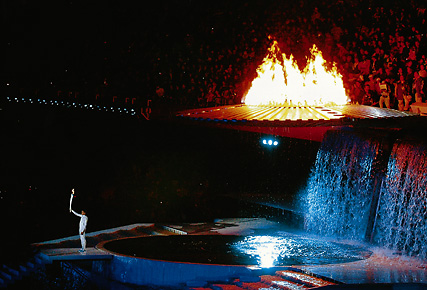
Most runners carry the flame on foot. However, many other kinds of transportation, including airplanes, horses, and skis, have also been used. The final runner lights the huge cauldron. The flame burns throughout the games and then is extinguished during the Closing Ceremony.
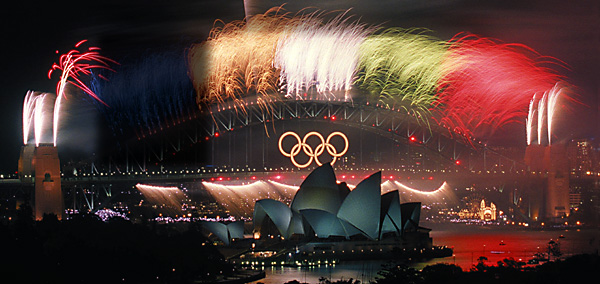
The Olympic symbol, created in 1913, consists of five interlocking rings that represent the continents of Africa, Asia, Australia, Europe, and the Americas. The colors of the rings, from left to right, are blue, yellow, black, green, and red. The flag of every nation competing in the games has at least one of these colors. Under the rings is the Olympic motto, the Latin words Citius, Altius, Fortius. The words are translated as Swifter, Higher, Stronger.
The International Olympic Committee
The International Olympic Committee (IOC) is the governing body of the Olympic Games. The IOC has headquarters in Lausanne, Switzerland. The committee approves the sports and events to be included in the games. The IOC also selects the host cities for the Summer Games and Winter Games, seven years in advance. The cities bidding for the games must prove they can provide athletic facilities for the games and housing for the athletes, coaches, officials, and visiting spectators.
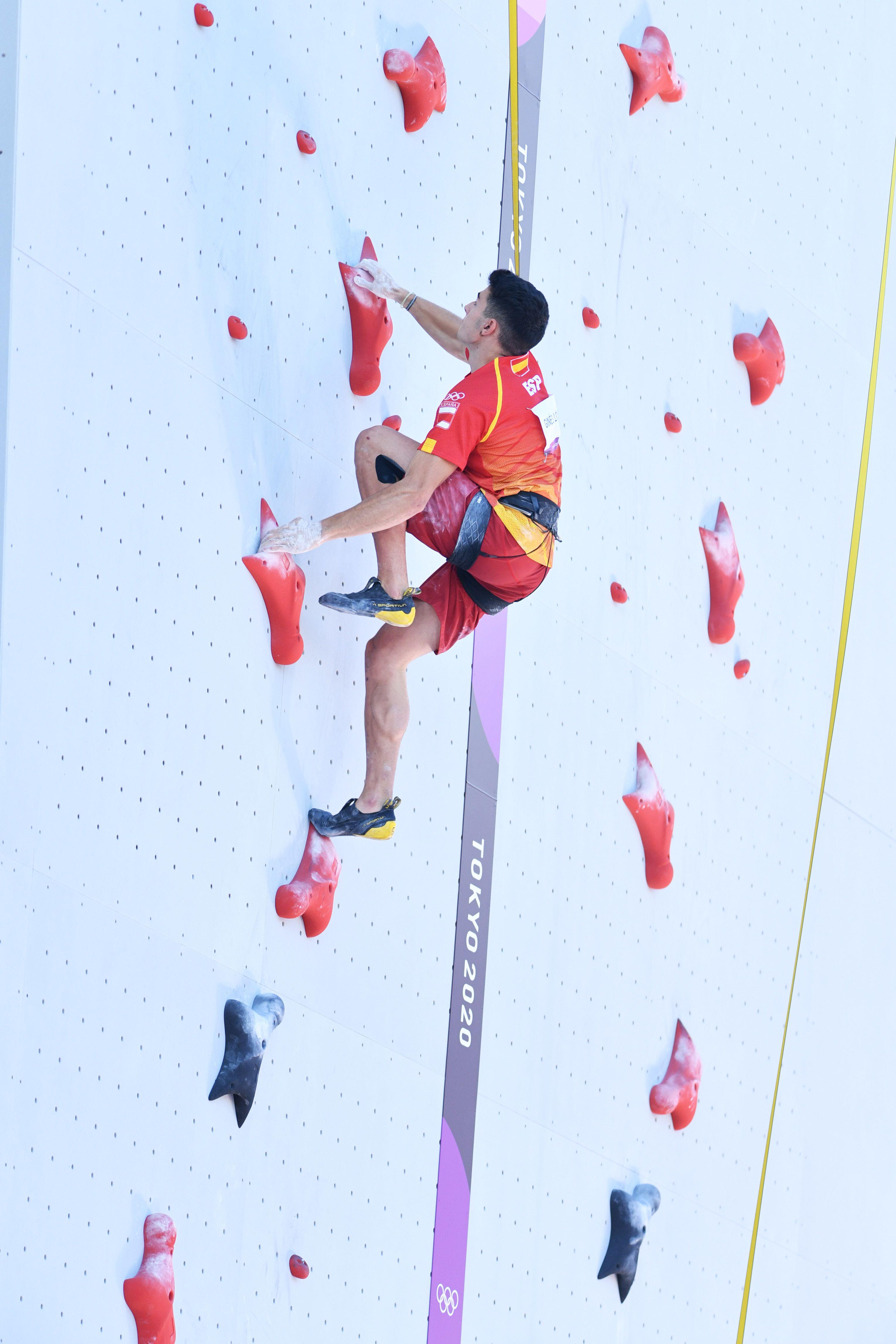
Host cities provide a special housing compound called the Olympic Village for the athletes and coaches. The prospective hosts must also convince the IOC that they can furnish adequate transportation, food service, cultural activities, and security. Host cities are chosen by a majority vote of the IOC.
Originally, members of the IOC were elected for life. However, according to a rule change in 1995, all members must retire before they reach the age of 81. Members elected in 1999 or later generally retire the year they turn 70. The members of the IOC are not allowed to accept instructions on voting from any government or other group or individual. New members of the IOC are elected by current members. There are no rules setting the size of the IOC or what countries should be represented.
Olympic competition
Every country or territory competing in the Olympic Games is represented by a national Olympic committee. In the early 2020’s, more than 200 nations and territories had such groups. Each committee is responsible for selecting its national team, providing uniforms and equipment, and furnishing transportation to the Olympic site.
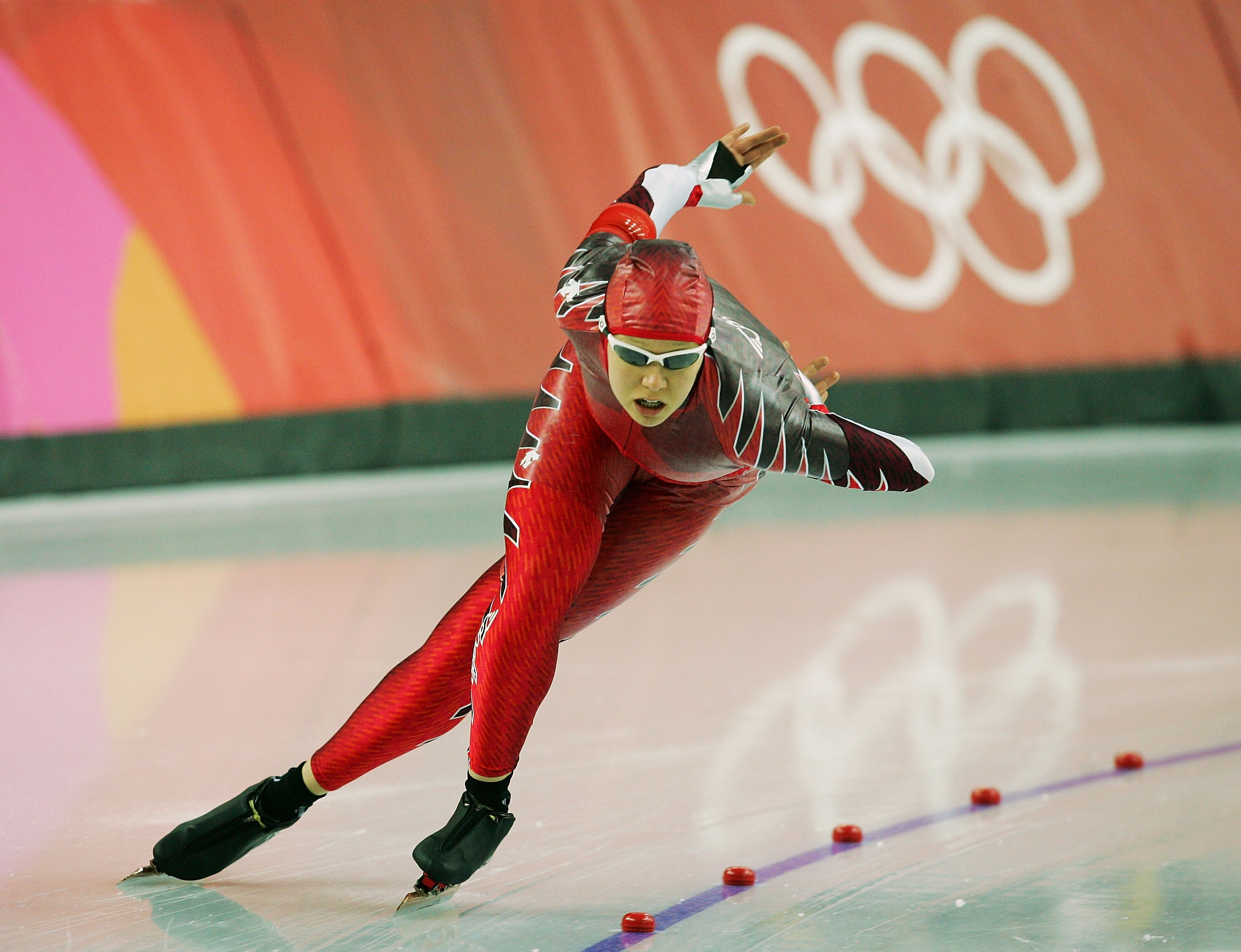
Most countries use government funds to pay their Olympic expenses. The IOC also provides financial aid. The United States is the only large nation whose government does not give its team financial support. The U.S. team is largely financed by contributions from private corporations and individuals.
Selection of the athletes.
In many countries, athletes qualify for the Olympics by winning or finishing high in competitions called selection trials. In most cases, athletes are invited to the trials based on their performance in national and international competitions.
An athlete representing a country must be a citizen of that country. For many years, only amateur athletes competed in the games. This gave an advantage to wealthy athletes who could devote all their time to training without worrying about earning money. Professional athletes are now eligible to compete in all Olympic sports except boxing.
Entries.
Each sport has its own standards for eligibility for the Olympics. There are special “wild-card” entry provisions for countries that do not meet the standard. Also, countries with no qualified male or female athlete or relay team are allowed to enter their best male athlete and female athlete in all but a few events.
Team sports are limited to 8 to 16 teams per sport. National teams must win or place high in qualifying tournaments to make the final competition. The host country is allowed to enter a team in every team event.
Medals.
The top three finishers in each event receive a medal and a diploma. The next five finishers get only a diploma. Each first-place winner receives a gold medal, which is actually made of silver and coated with gold. The second-place medal is made of silver, and the third-place medal is bronze. All members of a winning relay team get a medal, including those who participated only in qualifying rounds. In team sports, all the members of a winning team who have played in at least one of the games during the competition receive a medal.
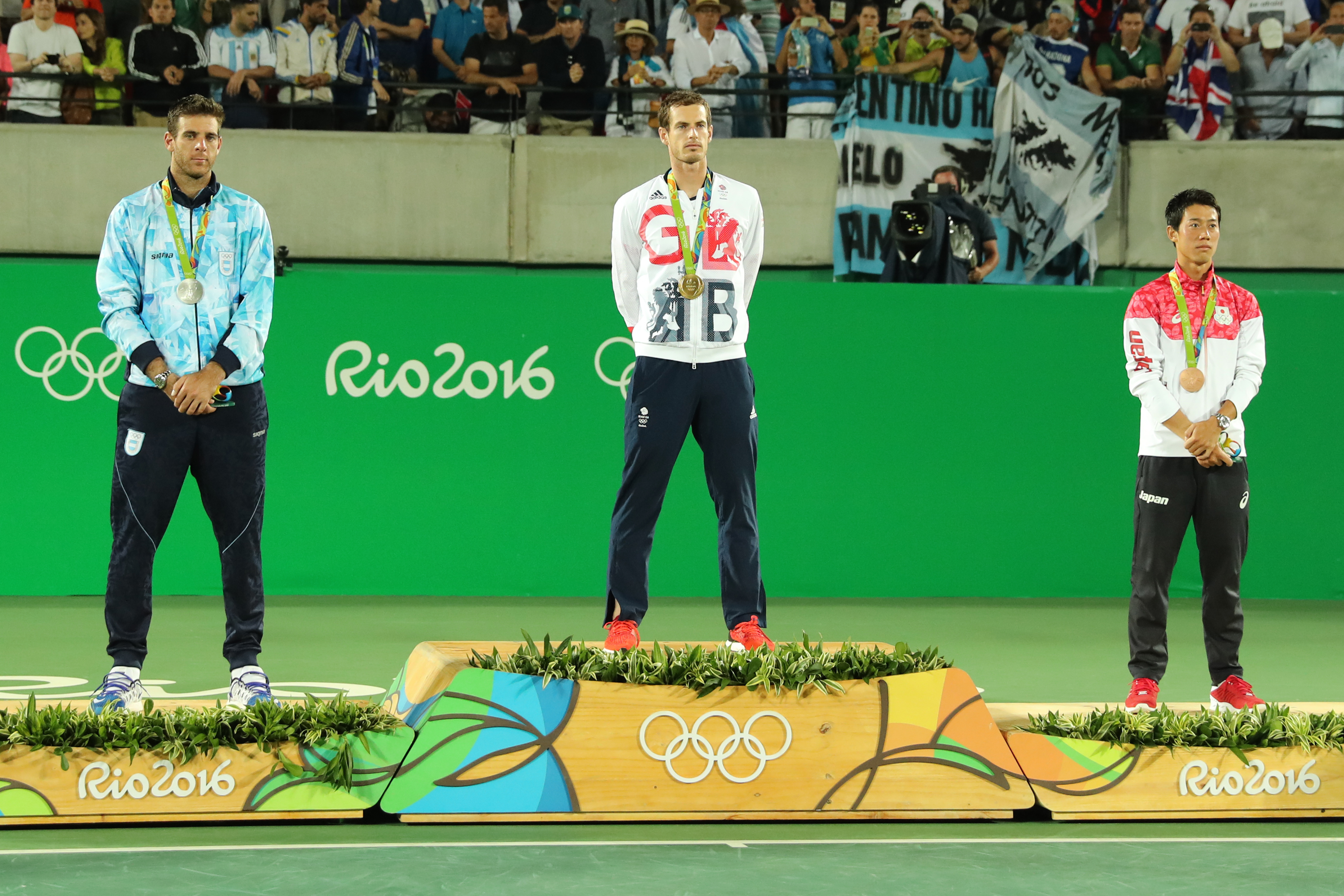
The top three finishers receive their medals in a ceremony that usually follows the event. The medal winners stand at attention on a platform, with the gold medalist in the middle. The silver medalist stands on the gold medalist’s right and the bronze medalist on the left. The flags of their countries are raised, and a band plays the national anthem of the country of the gold medal winner.
Olympic competition is intended to test the skill of individuals and teams, not nations. No country “wins” the Olympics. However, medal totals are compiled by the press and by the IOC.
The Summer Games
The Summer Games are held during the summer season of the host city, usually between July and October, and last 17 days. Athletes compete in more than 300 separate events during the Summer Games.
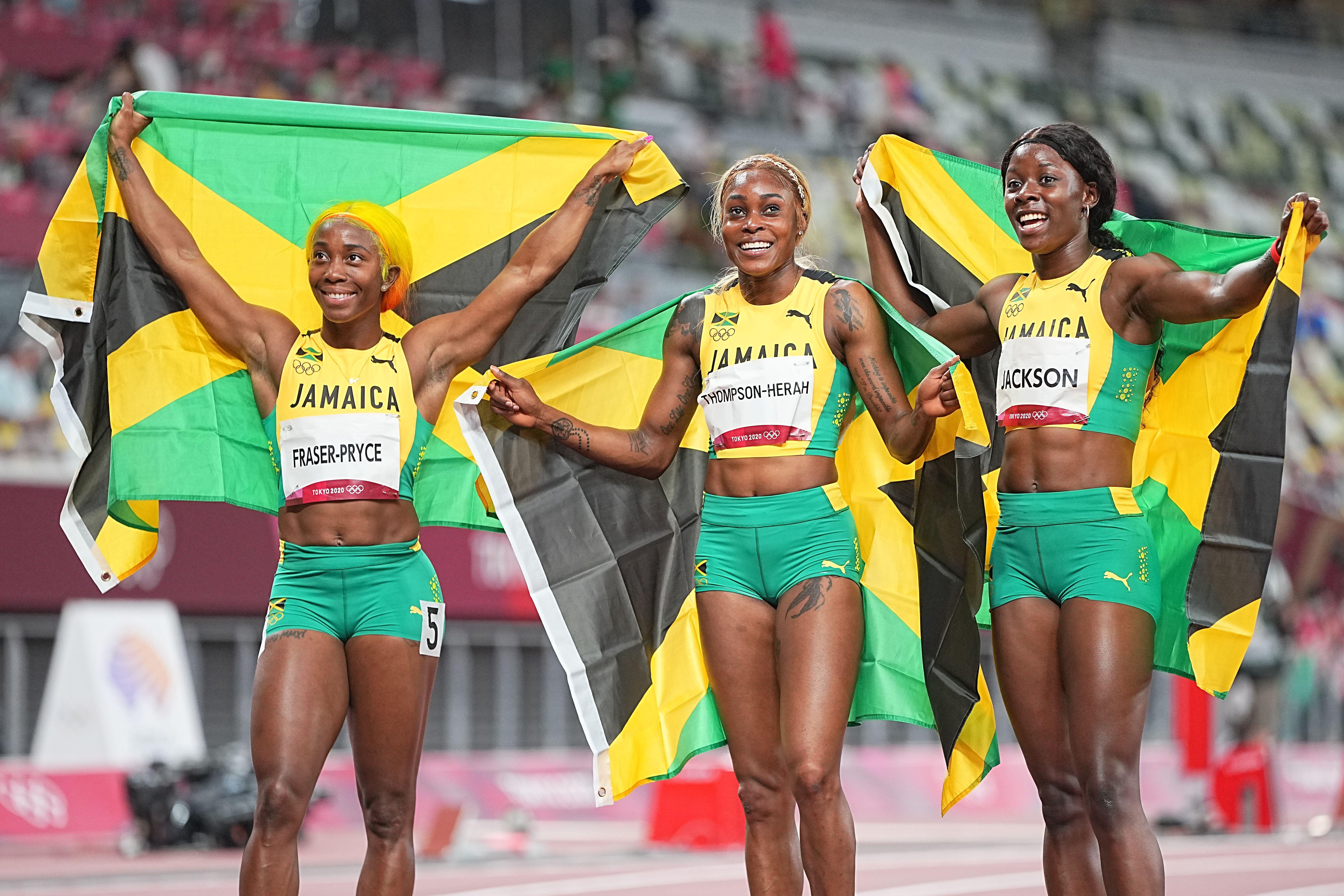
The Summer Games have grown enormously. In the first modern games in 1896, about 245 male athletes from 14 nations competed. Today, about 11,000 male and female athletes representing about 205 countries and territories participate.
The Winter Games
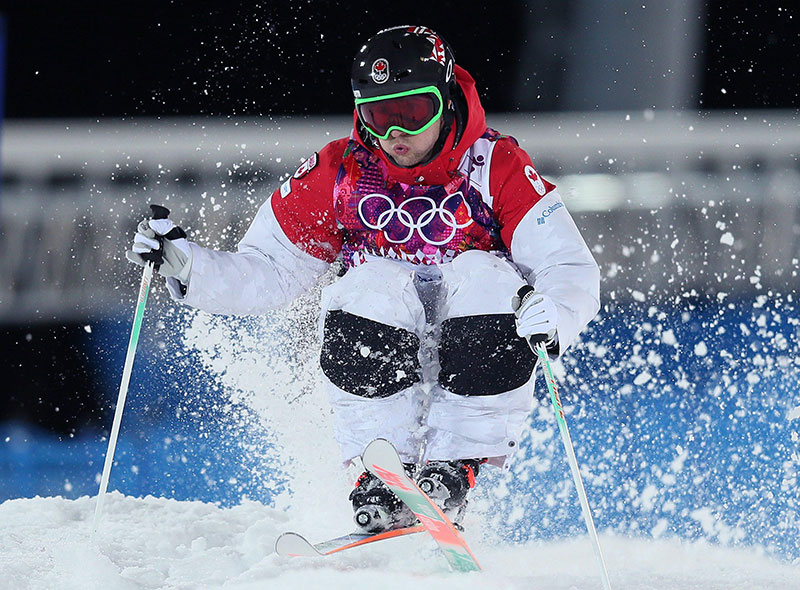
The Winter Games are usually held in February and last 17 days. The Winter Olympics include about 110 events in 15 sports. The games attract more than 2,900 athletes from about 90 countries.
The ancient games
Athletics played an important role in the religious festivals of ancient Greece. Historians believe the ancient Greeks first organized athletic games as part of funeral ceremonies for important people. This practice probably existed by the 1200’s B.C. Later, games became part of religious festivals honoring the gods. Many Greek cities held festivals every two or four years.
Over time, four great religious festivals developed that brought together people from throughout the Greek world. These festivals were the Isthmian, Nemean, Pythian, and Olympic games. The Olympic Games, which ranked as the most important, honored Zeus, the king of the gods.
The first recorded Olympic contest took place in 776 B.C. at Olympia in western Greece. The first winner was Koroibos (also spelled Coroebus), a cook from Elis. The Olympic Games were held every four years. They were so important to the ancient Greeks that time was measured in Olympiads, the four-year intervals between games. The only event in the first 13 games was the stadion, a running race of 192 meters (210 yards). Through the years, longer running races were added.
Other types of competition became part of the ancient Olympics. In 708 B.C., wrestling and the pentathlon were added. The pentathlon was a combination of jumping, running, the discus throw, the javelin throw, and wrestling. Boxing joined the program in 688 B.C., and the four-horse chariot race was added in 680 B.C. Horse racing was included in 648 B.C., as was the pancratium (also spelled pankration), a combination of boxing, wrestling, and kicking. Some unusual events were included in the Olympics, such as a race in armor, a chariot race called the apene in which two mules pulled the chariot, and a competition for trumpeters.
The ancient Olympics produced several famous champions. Milo of Kroton won the wrestling competition five times between 532 and 516 B.C., and Leonidas of Rhodes won three running races in each of four Olympics from 164 to 152 B.C.
The Romans conquered Greece during the 140’s B.C., and the games soon lost their religious meaning. In A.D. 393, Emperor Theodosius I banned the games.
The modern games
The modern games begin.
In 1875, a group of German archaeologists began to excavate the ruins of the stadium and temples of Olympia, which had been destroyed by an earthquake and buried by a landslide and floods. Their discoveries inspired Baron Pierre de Coubertin, a French educator, to organize a modern international Olympics. He first proposed the idea publicly in 1892. In 1894, the first IOC was formed.
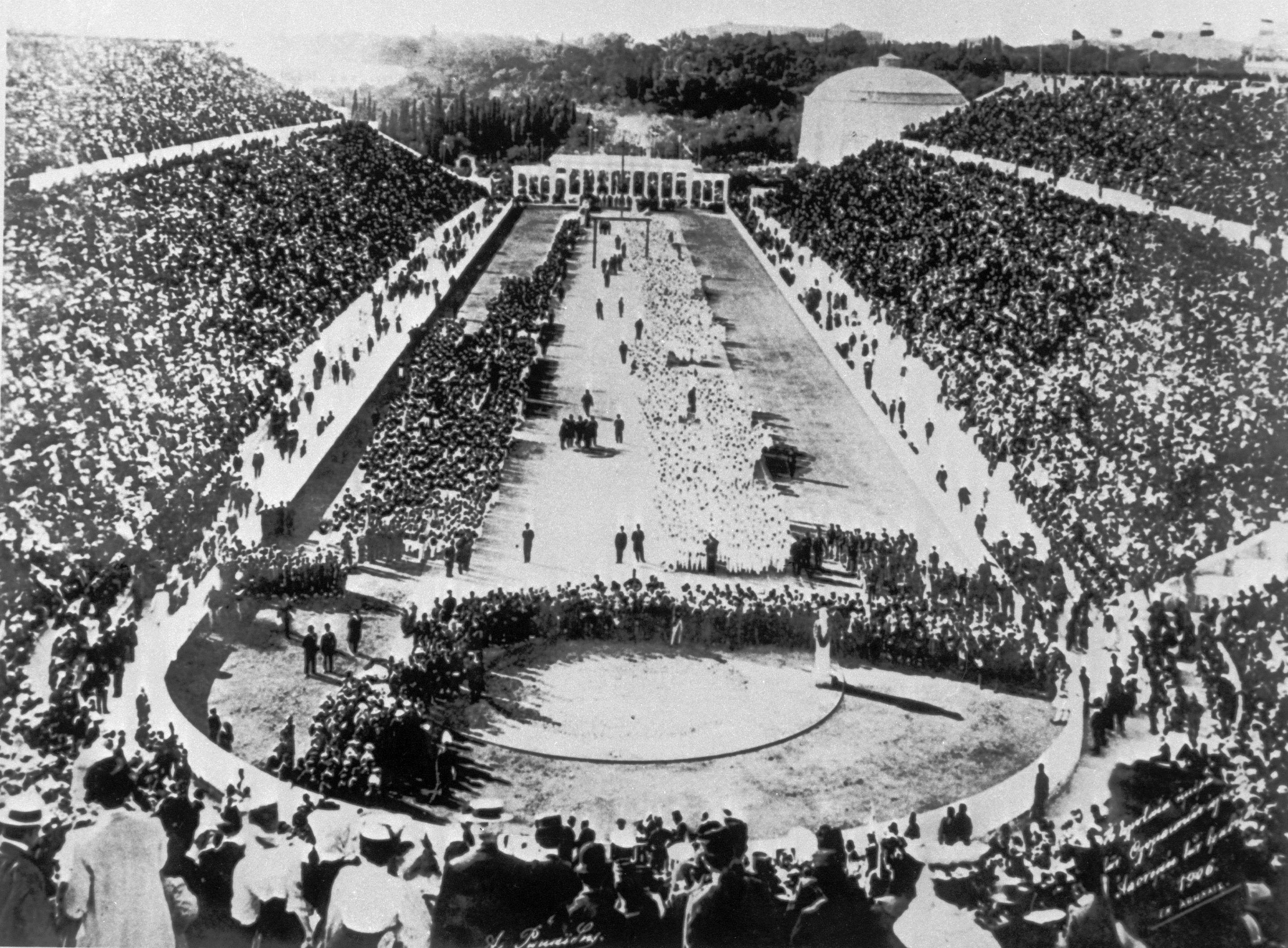
The first modern Olympic Games were held in Athens, Greece, in 1896. The athletes competed in nine sports: (1) cycling, (2) fencing, (3) gymnastics, (4) lawn tennis, (5) shooting, (6) swimming, (7) track and field, (8) weightlifting, and (9) wrestling. James B. Connolly of the United States became the first modern Olympic champion, winning the triple jump (then known as the hop, step, and jump).
The games of 1900 and 1904 attracted little attention. The 1900 Olympics were held as part of the Universal Exposition, a world’s fair in Paris. Competition was spread out over five months. Attendance was poor, and some athletes did not even realize they had participated in the Olympics. In the 1900 Olympics, tennis and golf became the first sports to include events for women only. However, women competed with men in croquet, equestrian events, and sailing. The first women Olympic champions were British tennis player Charlotte Cooper and American golfer Margaret Abbott. Poor attendance and other problems also plagued the 1904 Olympics, held as part of the Louisiana Purchase Exposition in St. Louis, Missouri.
In the early years of the Olympics, competitions were held in several sports that were later dropped. They included polo, croquet, tug of war, the high jump on horseback, and a swimming obstacle race.
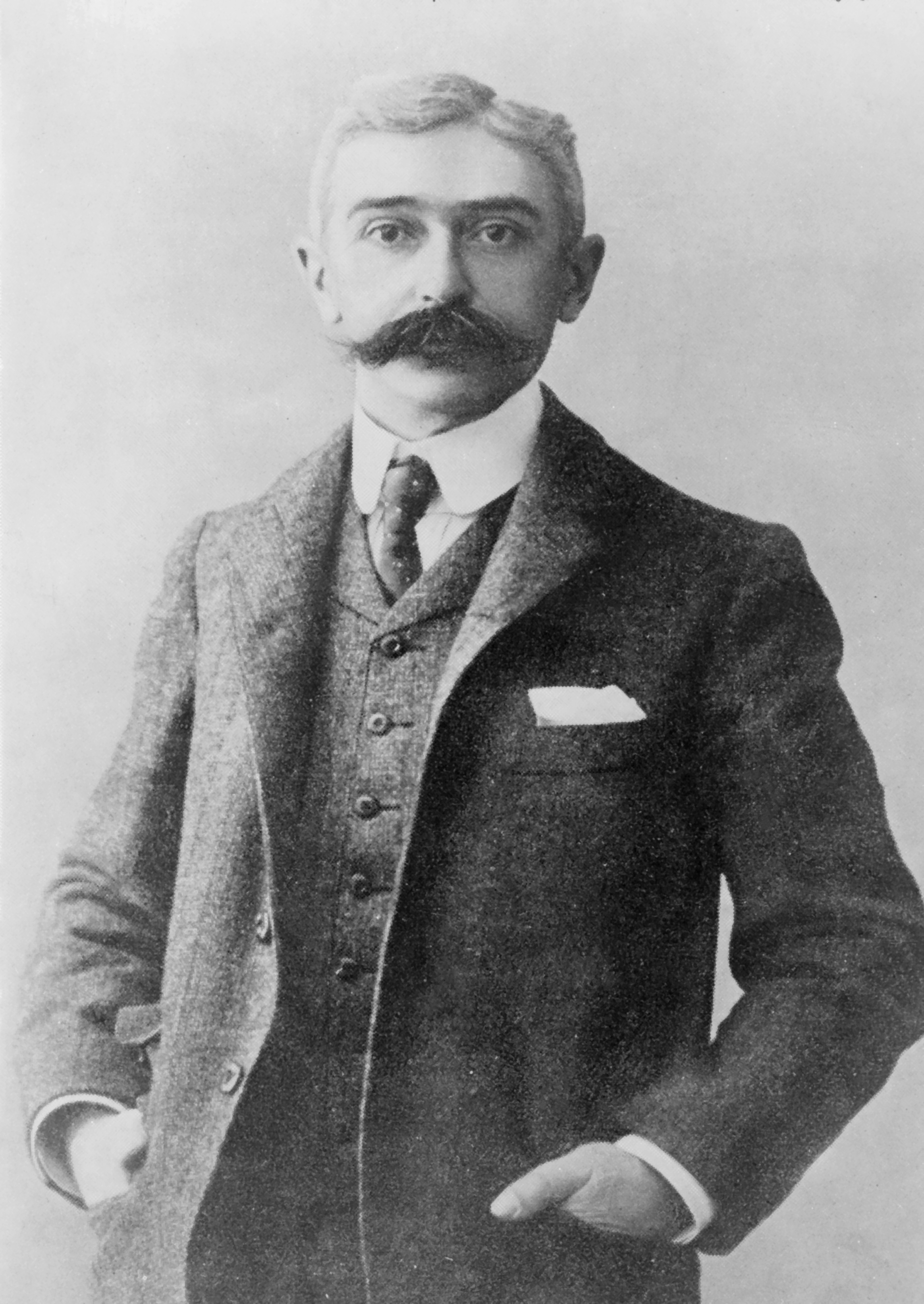
The Olympic movement might have died except for the Intercalated, or Interim, Games held in Athens in 1906. The IOC does not consider these games official. However, they were popular and held the movement together until the next official games in London in 1908. The most dramatic moment of the 1908 games came in the marathon. Dorando Pietri of Italy entered the stadium in first place but collapsed before reaching the finish line. Officials dragged Pietri across the finish line and declared him the winner, but he was later disqualified because he did not finish under his own power.
The 1912 Olympics in Stockholm, Sweden, were the first well-organized Olympic Games. The hero of Stockholm was Jim Thorpe, a Native American athlete who easily won the 10-event decathlon and the 5-event pentathlon. Thorpe’s medals were taken away after it was discovered that he had played baseball for a small salary before the games, making him a professional athlete and therefore ineligible for the Olympics. In 1982, the IOC voted to return the medals to Thorpe’s family and put his name back in the record books as an Olympic champion. 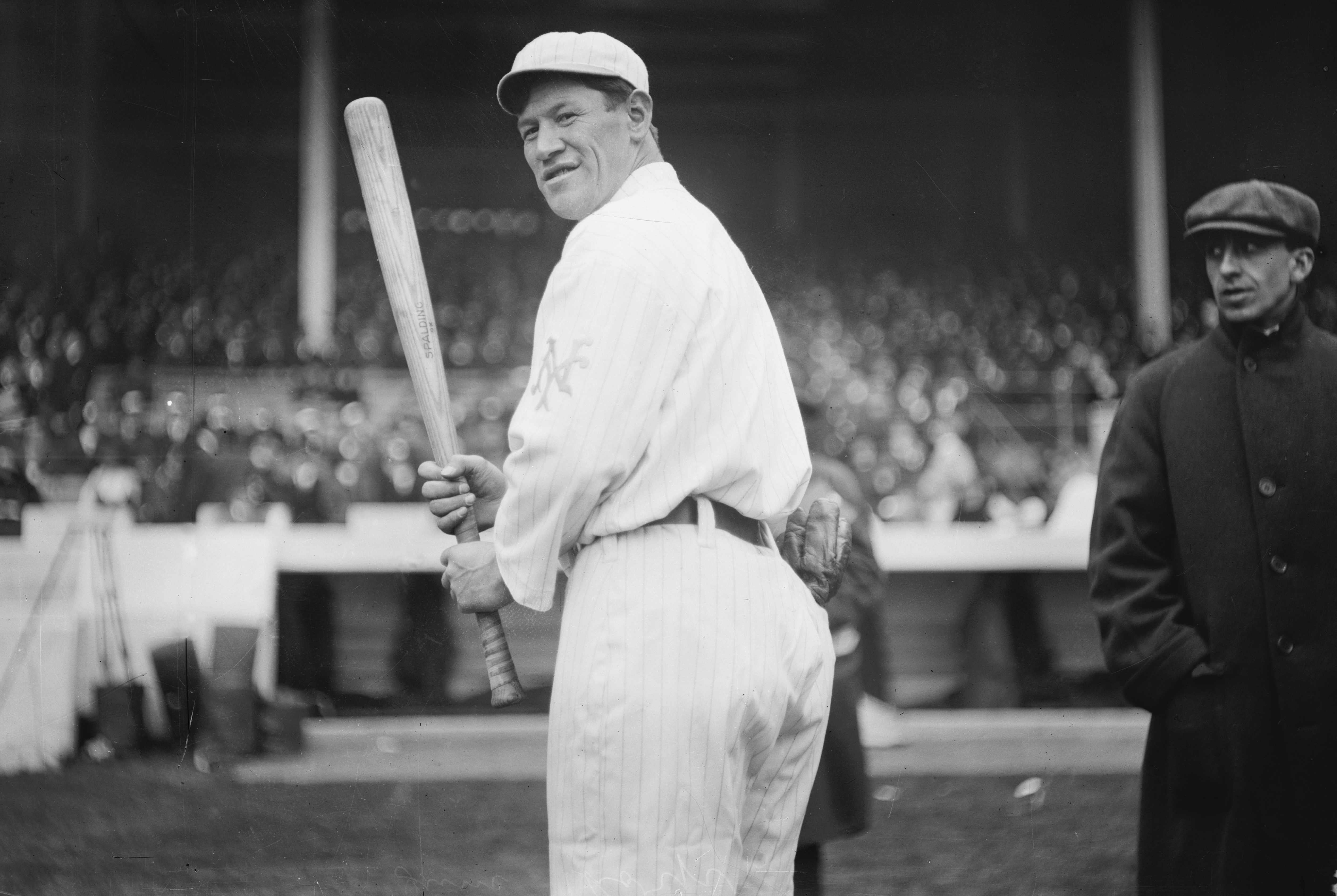
Between the wars.
The 1916 games were canceled because of World War I (1914-1918). The 1920 Olympics in Antwerp, Belgium, marked the first appearance of the great Finnish distance runner Paavo Nurmi. He competed in all three Olympics of the 1920’s, winning nine gold medals.
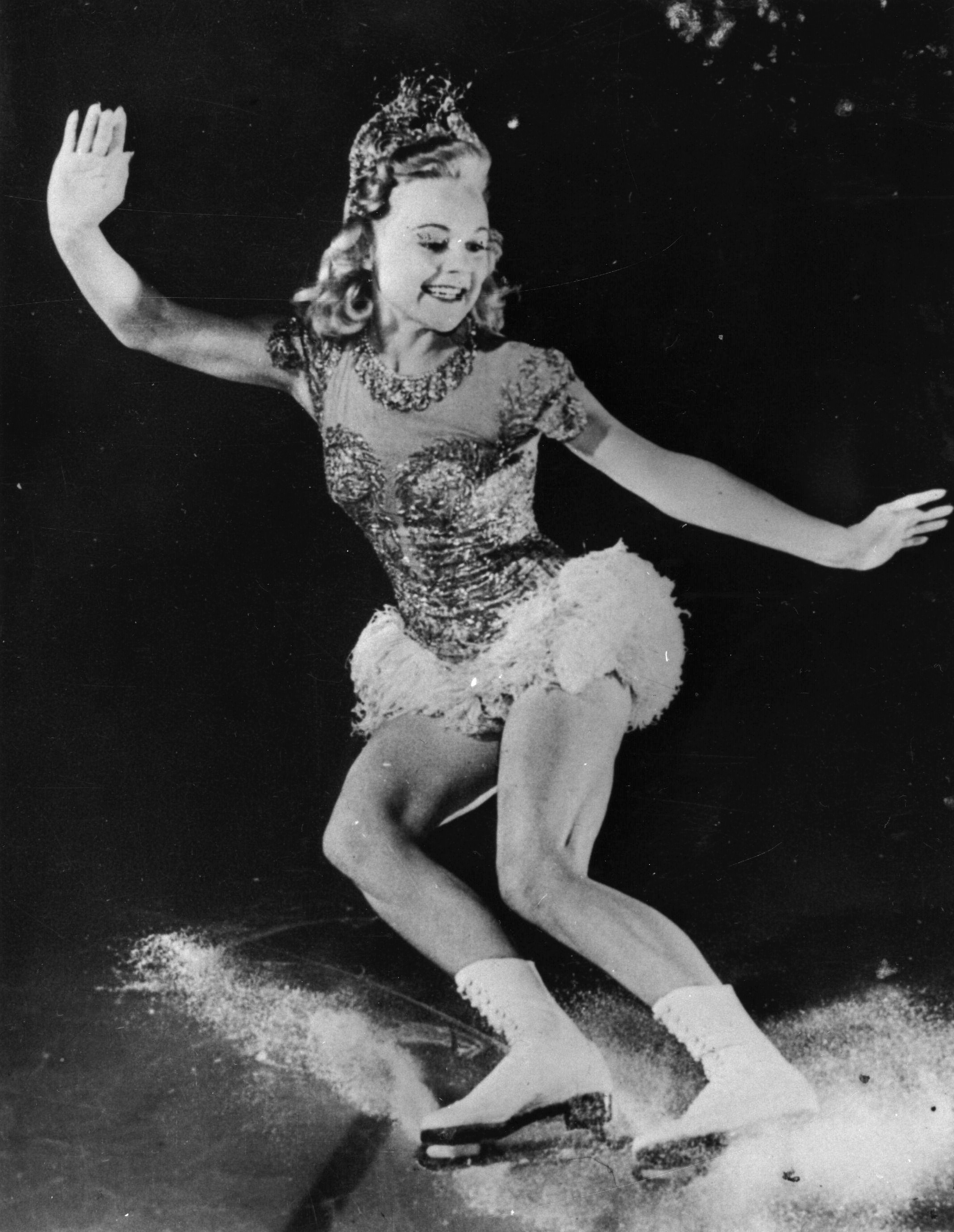
Figure skating was included in the 1908 games, and both figure skating and ice hockey were part of the 1920 games. The first separate Winter Games took place in Chamonix, France, in 1924, with 299 men and 13 women representing 19 countries.
The 1924 Summer Games were held in Paris. One of the stars was American swimmer Johnny Weissmuller, who later became famous portraying Tarzan in motion pictures. Other famous athletes included British sprinters Harold Abrahams and Eric Liddell, later portrayed in the film Chariots of Fire (1981).
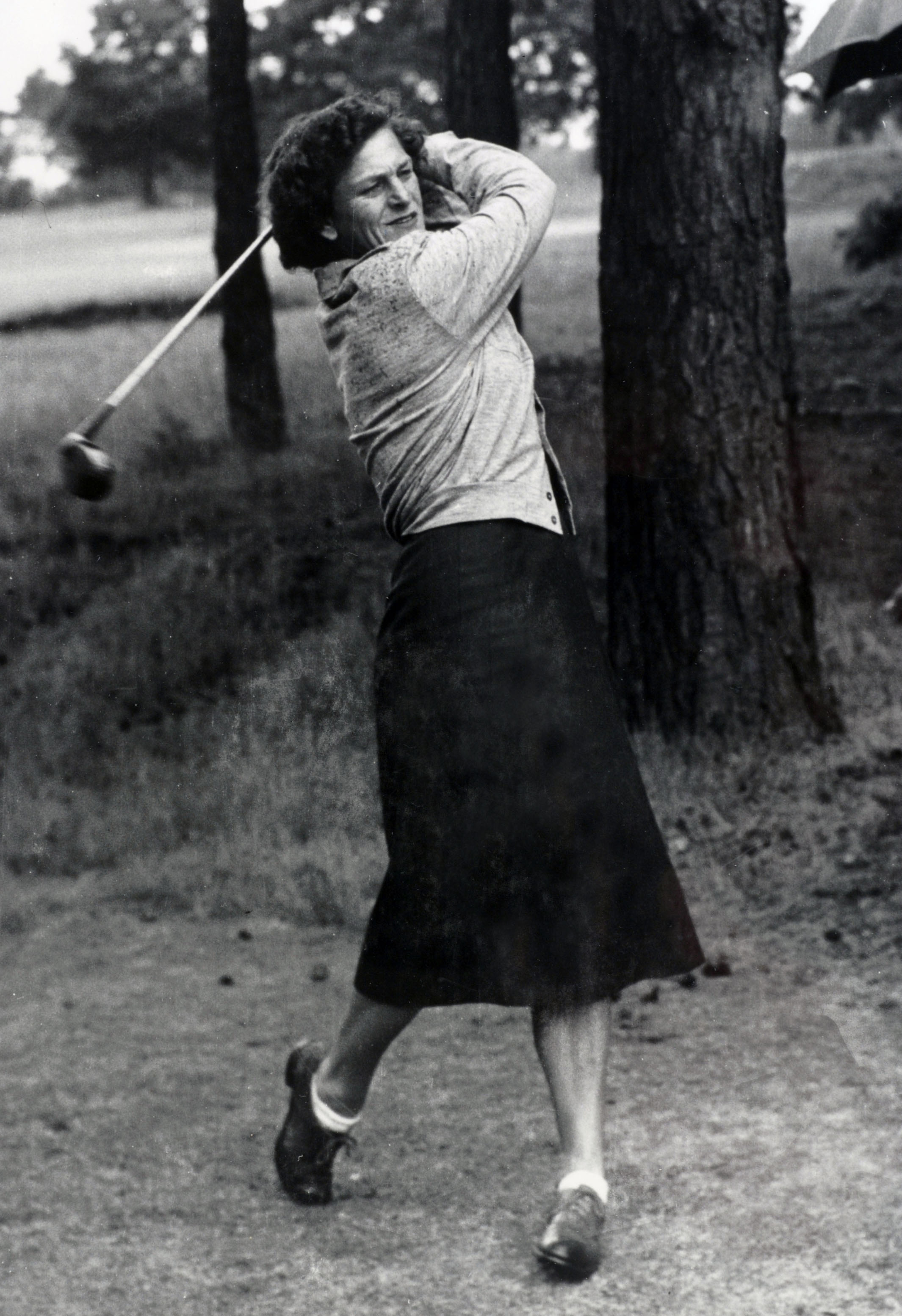
The 1928 Summer Games, held in Amsterdam, the Netherlands, were the first in which women competed in track and field. In the Winter Games in St. Moritz, Switzerland, Sonja Henie of Norway won her first gold medal in women’s figure skating. She repeated as champion in the 1932 and 1936 Winter Games before becoming a star of Hollywood musicals.
The 1932 Summer Games were held in Los Angeles. These games introduced automatic timing for races and the photo-finish camera. The first Olympic Village was also erected. The games produced the first U.S. female Olympic star, Babe Didrikson (later Babe Didrikson Zaharias). She qualified for five track and field events but was allowed to enter only three. She won the javelin throw and the hurdles race and finished second in the high jump.
In 1931, the IOC chose Berlin, Germany, as the site for the 1936 Summer Games and Garmisch-Partenkirchen, Germany, for the Winter Games. Two years later, Adolf Hitler and his Nazi Party rose to power in Germany. As Hitler’s policies became known, there were pleas to move the Summer Games, but the IOC refused.
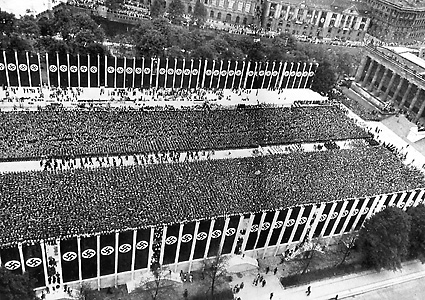
The Berlin games were the first to be preceded by a torch relay of the Olympic flame from Greece, and they were the first games to be shown on a form of television. But the 1936 Summer Olympics are best remembered for Hitler’s failed attempt to use them to prove his theory of racial superiority. The Nazis glorified the Germans and other northern European peoples, while claiming that Jews, Black people, and other groups were inferior. But the most successful athlete in the Summer Games was Jesse Owens, an African American athlete who won four gold medals in track and field. The German spectators, ignoring Hitler’s speeches against Black people, treated Owens as their favorite hero of the games.
Loading the player...Jesse Owens at the 1936 Summer Olympic Games
The postwar games.
The Olympics scheduled for 1940 and 1944 were canceled because of World War II (1939-1945). The first postwar Summer Games were held in London in 1948 and the Winter Games again in St. Moritz. The most popular athlete in the Summer Games was Fanny Blankers-Koen of the Netherlands, a homemaker who won four gold medals in track and field. A star of the Winter Games was Dick Button of the United States, who won the gold medal in figure skating, an achievement he repeated in the 1952 games. Barbara Ann Scott of Canada won the women’s figure-skating title, becoming the first Canadian figure skater to win an Olympic gold medal.
Loading the player...Winter Olympics 1948
Athletes from the Soviet Union made their first Olympic appearance in the 1952 Summer Games in Helsinki, Finland. By the 1956 games, Soviet athletes were winning more medals than the athletes of any other country. In Helsinki, Emil Zatopek of Czechoslovakia became the only runner to win the 5,000 meters, 10,000 meters, and marathon races in the same Olympics.
The 1956 Summer Games were held in Melbourne, Australia, the first to be held in the Southern Hemisphere. Because of Australian quarantine laws concerning horses, the equestrian events were staged separately in Stockholm, Sweden. In the weeks preceding the Melbourne games, Israel invaded Egypt and Soviet troops invaded Hungary. These actions led to the first boycotts of the modern Olympics. Egypt, Iraq, and Lebanon withdrew to protest the Israeli take-over of the Suez Canal. The Netherlands and Spain boycotted to protest the Soviet invasion. Switzerland also boycotted the Melbourne games but participated in the equestrian events in Sweden.
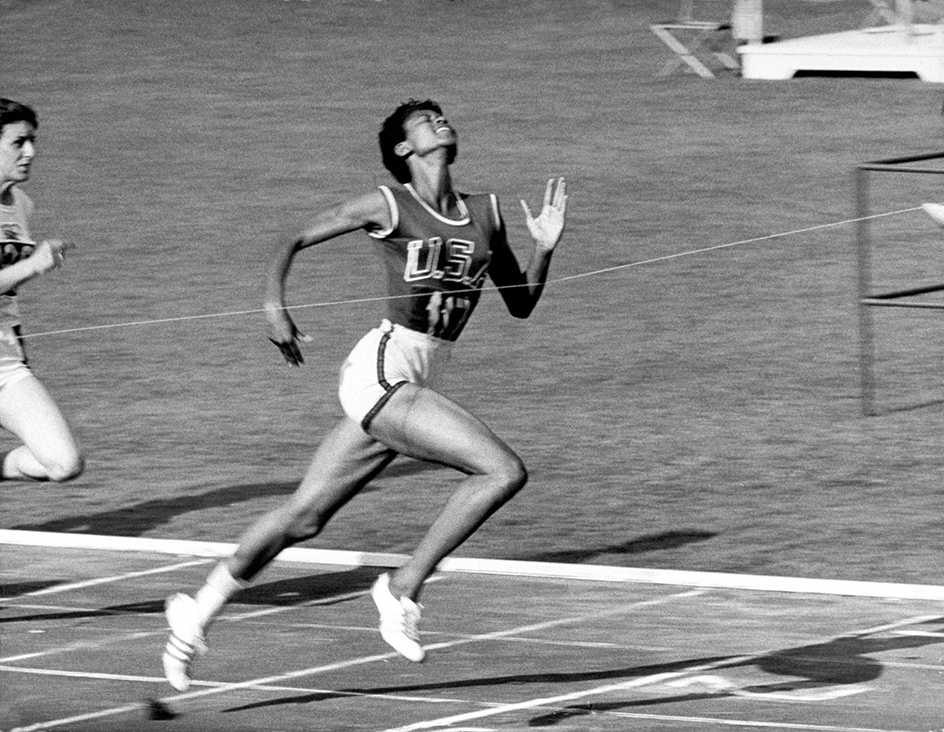
The 1960 Winter Games at Squaw Valley (now Palisades Tahoe) in California and the Summer Games in Rome were the first to be televised to the United States. The track and field stars of the Summer Games included American sprinter Wilma Rudolph and marathon winner Abebe Bikila of Ethiopia, the first Black African to win a gold medal. American boxer Cassius Clay won the light heavyweight gold medal. He later gained international fame as professional boxer Muhammad Ali.
In 1964, the Summer Games were held in Tokyo, the first Asian city to serve as host. Ukrainian gymnast Larissa Latynina won six medals. In her career, she won 18 Olympic medals, a record until American swimmer Michael Phelps won 22 medals from 2004 through 2012. The Tokyo games were the last Summer Games for more than 20 years to be free of major controversy.
The 1968 games.
The 1968 Summer Games were held in Mexico City during a period of political turmoil throughout the world. The most controversial episode took place during the medal ceremony for the men’s 200-meter dash. The gold and bronze medals were won by African American sprinters Tommie Smith and John Carlos. To protest racism in the United States, both athletes bowed their heads and raised clenched fists during the playing of the U.S. national anthem. At the insistence of the IOC, the U.S. Olympic Committee suspended both men from the Olympic team and ordered them to leave the Olympic Village.
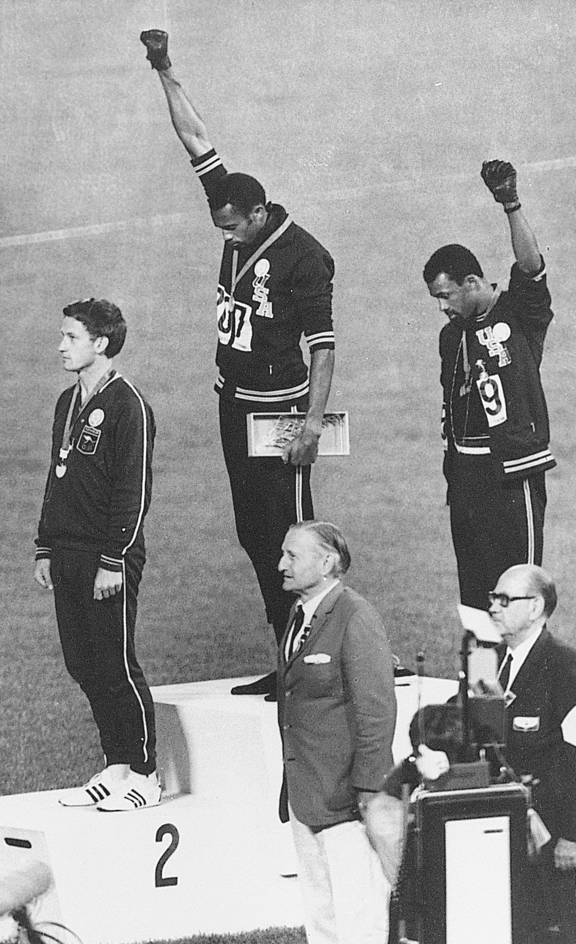
Mexico City’s high altitude was disastrous for athletes in long-distance races and other endurance events, but it contributed to world records in many other contests. The most famous record was 29 feet 2 1/2 inches (8.90 meters) in the long jump, set by Bob Beamon of the United States. The jump became a world record that lasted for 23 years.
The 1968 Winter Games in Grenoble, France, produced one of the great Olympic heroes of the 1960’s. French skier Jean-Claude Killy won three gold medals and became an international celebrity.
Terrorism in Munich.
The 1972 Summer Games were held in Munich, in what was then West Germany. The Munich Olympics are remembered for the events of September 5. Eight Palestinian terrorists broke into the Olympic Village and entered the dormitory of the Israeli team. They killed two Israelis and took nine hostages, demanding the release of more than 200 Arab prisoners in Israel. During a battle with West German sharpshooters, all the Israeli hostages were killed, along with five terrorists and one policeman.
The highlight of the competition was the performance of swimmer Mark Spitz of the United States, who won seven gold medals. The Soviet Union also won a controversial victory over the U.S. men’s basketball team in the championship game. The Americans led by 1 point when the buzzer sounded to end the game. But the officials twice ordered the game to continue, first for 1 second and then for 3 seconds more, enabling the Soviet team to score the winning basket.
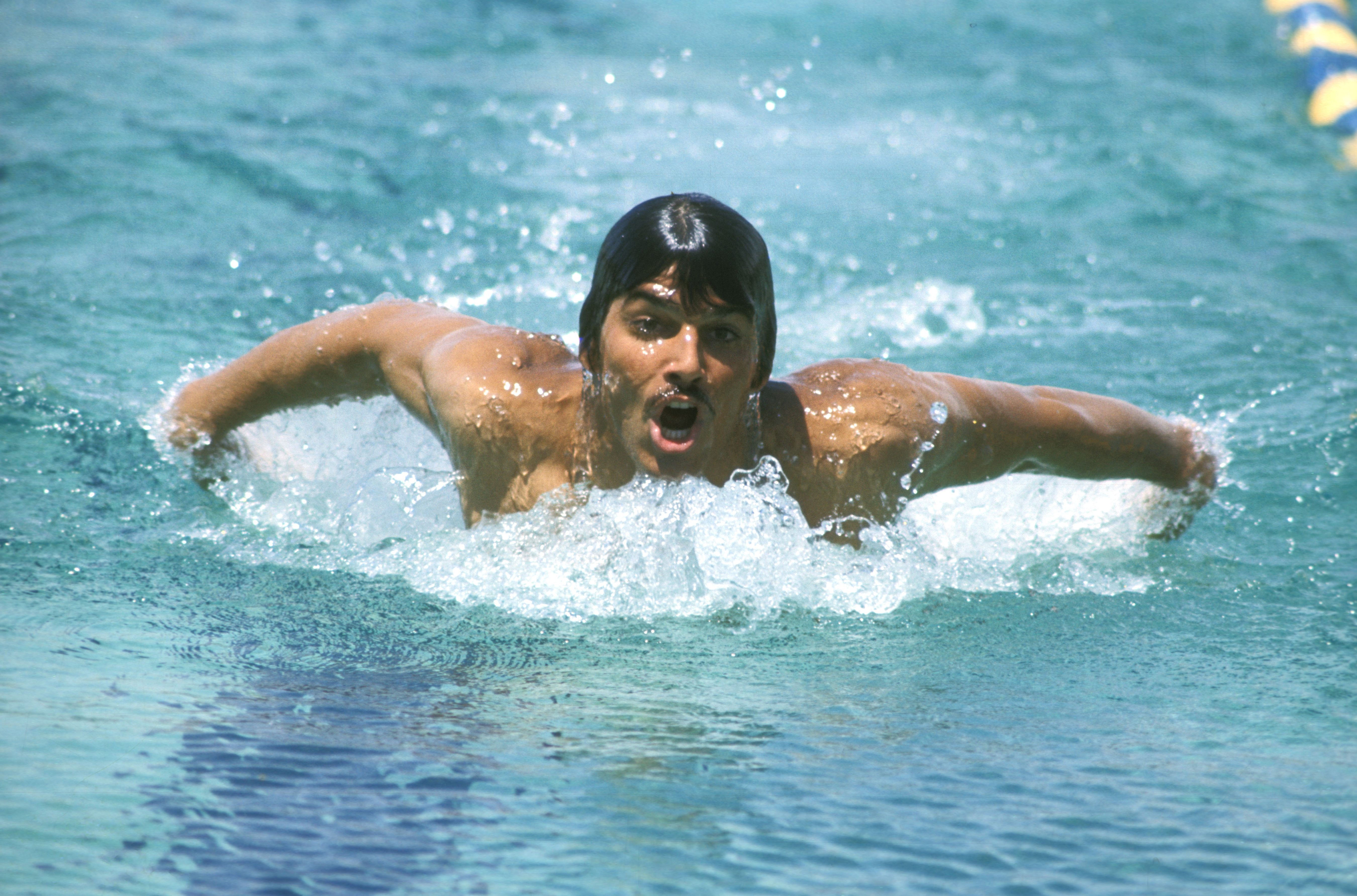
Boycotts.
The 1976 Summer Games, held in Montreal, Canada, were hit by boycotts. Led by Tanzania, twenty-two African nations and one South American nation (Guyana) boycotted the games in protest against New Zealand. The boycotters demanded that New Zealand be banned from competition because a New Zealand rugby team had toured South Africa. At that time, South Africa had a government controlled by white people that enforced a policy of rigid racial segregation called apartheid. South Africa was barred from the Olympics because of its racial policies, but the IOC said it had little control over the travel of rugby teams because rugby was not an Olympic sport. Albania and Taiwan boycotted the games for other reasons.
In spite of the absence of hundreds of top athletes, the 1976 games were filled with outstanding performances. A 14-year-old gymnast from Romania named Nadia Comaneci caused a sensation by earning the first perfect score of 10 ever awarded in the Olympics. She eventually earned seven scores of 10 and won three gold medals.
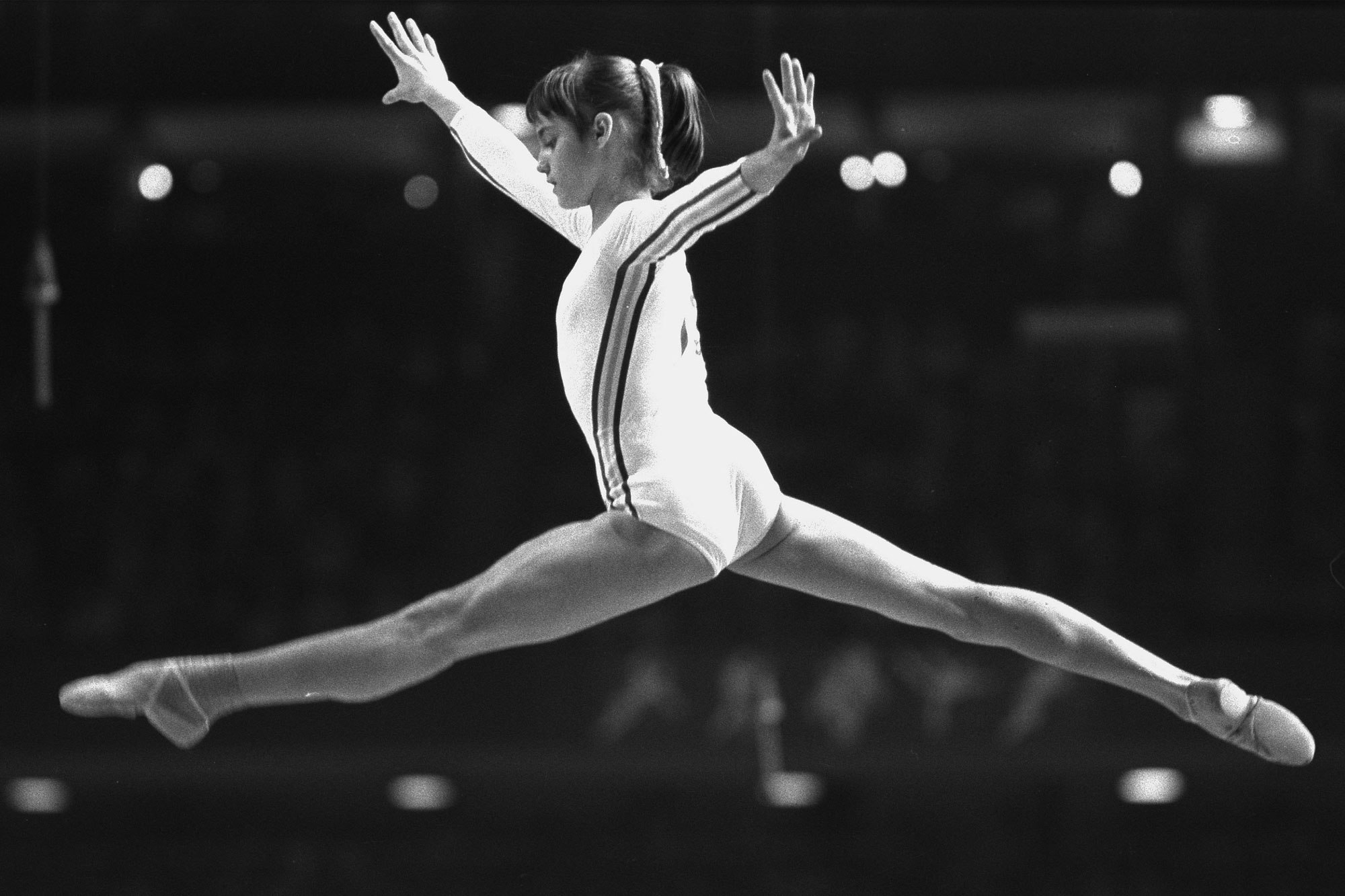
The 1980 Summer Games in Moscow were disrupted by another boycott, this one led by U.S. President Jimmy Carter. The boycott protested the Soviet Union’s 1979 invasion of Afghanistan. Carter urged other nations to join the boycott, and about 50 nations stayed away as part of the protest.
The 1980 Winter Games in Lake Placid, New York, were among the most exciting in history. Eric Heiden of the United States won all five speed-skating races, setting an Olympic or world record in each race. He became the first athlete to win five individual gold medals in one Olympics. Mark Spitz had won three of his seven gold medals as a member of a winning relay team.
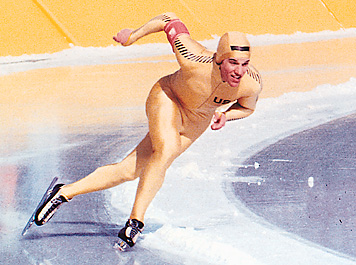
Also at the 1980 Winter Games, the United States ice hockey team won an unexpected gold medal. The American team upset the Soviet Union team in an emotional game and then defeated Finland for the gold medal. 
The games returned to Los Angeles in 1984. Because the games were being held in the United States, the Soviet Union launched a revenge boycott. Only 13 countries joined the boycott, but they included such sports powers as Bulgaria, East Germany, Cuba, and Hungary. Among the sports that lost most of their medal favorites were weightlifting, wrestling, gymnastics, women’s swimming, and women’s track and field. However, China competed in the Olympics for the first time in more than 30 years. China was led by the popular gymnast Li Ning, who won six medals. United States track and field star Carl Lewis matched Jesse Owens’s 1936 feat of winning four gold medals.
Charges of steroid use.
The 1988 Summer Games were held in Seoul, South Korea, and were boycotted by Ethiopia, North Korea, and Cuba. Instead of political controversy, disputes over the use of drugs called anabolic steroids marked the 1988 games. Anabolic steroids are artificial forms of male hormones used to increase strength and weight. Their use is banned in Olympic competition. Since 1968, the IOC has tested athletes for steroids and other performance-enhancing drugs.
In the 1988 Olympics, Ben Johnson of Canada defeated Carl Lewis in the 100-meter dash and set a world record. Three days later, the IOC announced that Johnson had tested positive for steroids and was disqualified. Lewis was awarded the gold medal, thus becoming the first man to win the 100-meter dash twice. He also won the long jump for the second time. Other notable performers were swimmers Matt Biondi of the United States, who won five gold medals, and Steffi Graf of West Germany, who won the gold medal in women’s singles as part of a season in which she also won all four grand slam tennis titles.
In the 1988 Winter Games in Calgary, Canada, Katarina Witt of East Germany won the women’s figure-skating title. Witt also had won the event in 1984. She was the first woman to repeat as champion since Sonja Henie.
The 1990’s.
The 1992 Summer Games in Barcelona, Spain, reflected the breakup of the Soviet Union and the collapse of Communist governments in Eastern Europe. Germany entered a unified team representing the former countries of East and West Germany. The Baltic states of Estonia, Latvia, and Lithuania, previously part of the Soviet Union, competed as separate nations. Russia and other former Soviet republics competed as the Unified Team. However, when athletes from the Unified Team won a medal, they were honored by the raising of the flag of their own republic and by the playing of their own national anthem. South Africa, which had ended apartheid, rejoined the Olympics and competed for the first time since 1960.
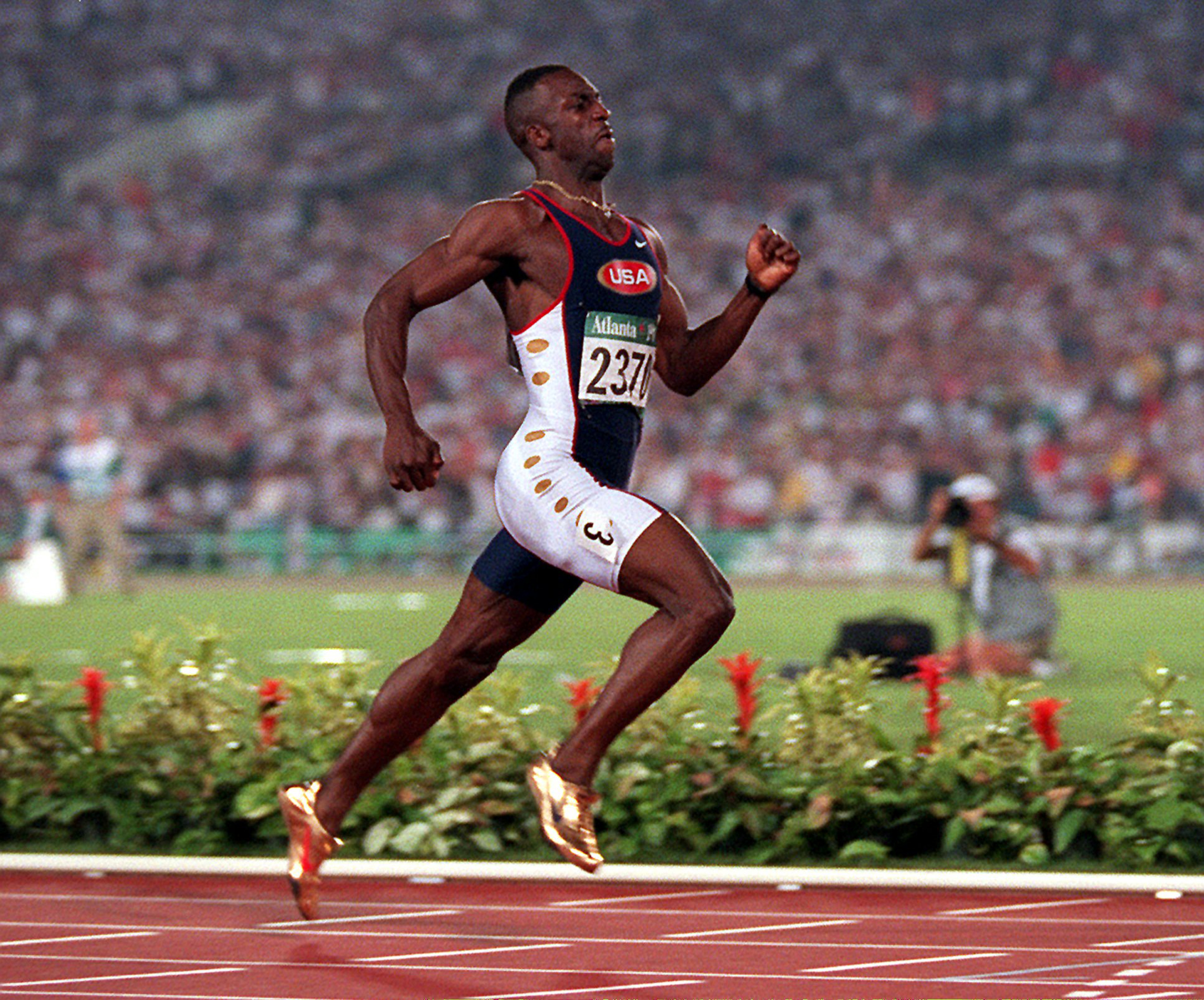
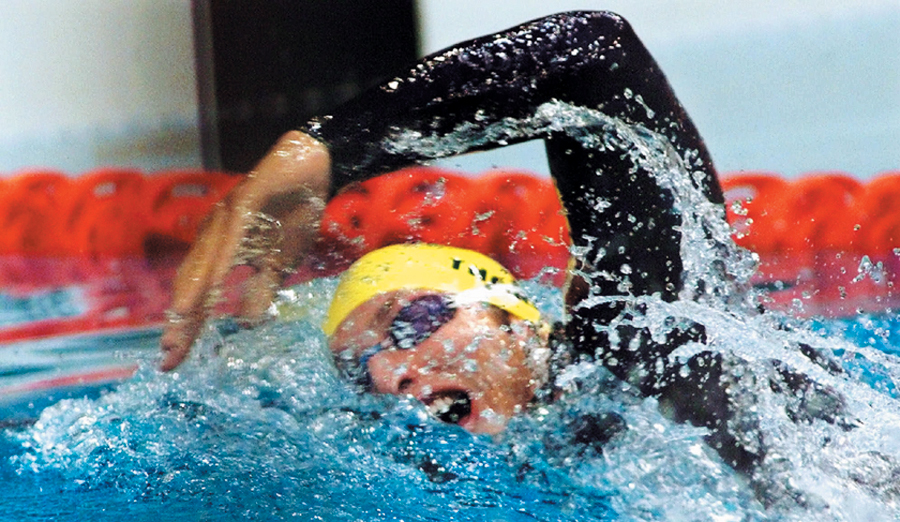
The 1992 Olympics also marked the first time that all professional basketball players were eligible for the competition. This rule change led to the creation of a U.S. “Dream Team” that included Magic Johnson, Larry Bird, Michael Jordan, Charles Barkley, and other stars of the National Basketball Association. The American team easily won the Olympic title.
Speed-skater Bonnie Blair was a star of the Winter Games of 1988, 1992, and 1994. She won five gold medals and a bronze medal in the three games. She became the first American woman to win gold medals in consecutive Winter Games.
The 1996 Summer Games were held in Atlanta, Georgia. Stars included Russian gymnast Alexei Nemov, who won six medals; Birgit Schmidt of Germany, who won her fifth career gold medal in canoeing; and Michael Johnson of the United States, who became the first male track athlete to win the 200-meter and 400-meter races in the same Olympics.
A new millennium.
At the 2000 Summer Games in Sydney, Australia, athletes competed for medals in 300 events. Drug problems continued to cast a cloud over the Games. Several athletes were disqualified for taking illegal drugs, including some athletes who forfeited medals after failing drug tests. Stars of the Games included Australian swimmer Ian Thorpe, Chinese diver Fu Mingxia, and cyclist Leontien Ziljaard of the Netherlands.
A controversy arose in the 2002 Winter Games over the judging of the figure skating pairs competition. Judges first awarded the gold medals to Elena Berezhnaya and Anton Sikharulidze of Russia and the silver medals to Jamie Sale and David Pelletier of Canada. After a protest and investigation, the Canadians were awarded gold medals along with the Russians.
The Phelps-Bolt era.
Drug problems remained an issue in the 2004 Summer Games in Athens, Greece. Numerous athletes were disqualified before or during the games for failing or refusing to take drug tests. The star of the games was American swimmer Michael Phelps, who won six gold medals and tied a record by winning eight medals during a single Olympics. German canoeist Birgit Fischer-Schmidt became the first athlete in any sport to win two medals in each of five Olympics. Other stars included Australian swimmer Ian Thorpe, Moroccan runner Hicham El Guerrouj, American swimmer Aaron Peirsol, British runner Kelly Holmes, and Chilean tennis player Nicolas Massu.
No single athlete dominated the 2006 Winter Olympics in Turin, Italy. The top medal winners were Canadian speed skater Cindy Klassen, who won five medals; South Korean short track speed skater Ahn Hyun-soo, who won four medals; and German biathlete Michael Greis, who won three gold medals.
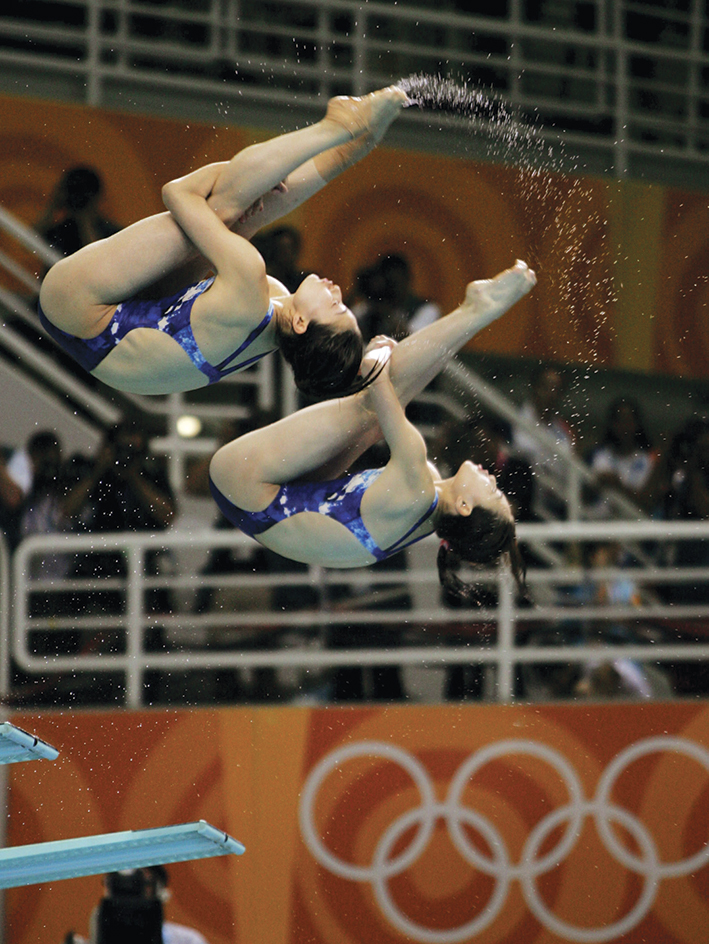
In 2007, the IOC announced the establishment of the Youth Olympics for athletes from 14 to 18 years old. The first Summer Youth Olympics were held in Singapore in 2010 and attracted about 3,500 competitors. The first Winter Youth Olympics were staged in Innsbruck, Austria, in 2012 with about 1,000 athletes competing.
The 2008 Summer Olympics in Beijing, China, were dominated by the American swimmer Michael Phelps and the Jamaican sprinter Usain Bolt. Phelps became the first athlete to win eight gold medals at a single Olympics, winning five individual races and competing on three winning relay teams. Phelps’s eight victories included seven world records and an Olympic record. Bolt won the 100-meter and 200-meter sprints, setting world records in both events. The United States won the most medals in the games with 112. China won the most gold medals with 48.
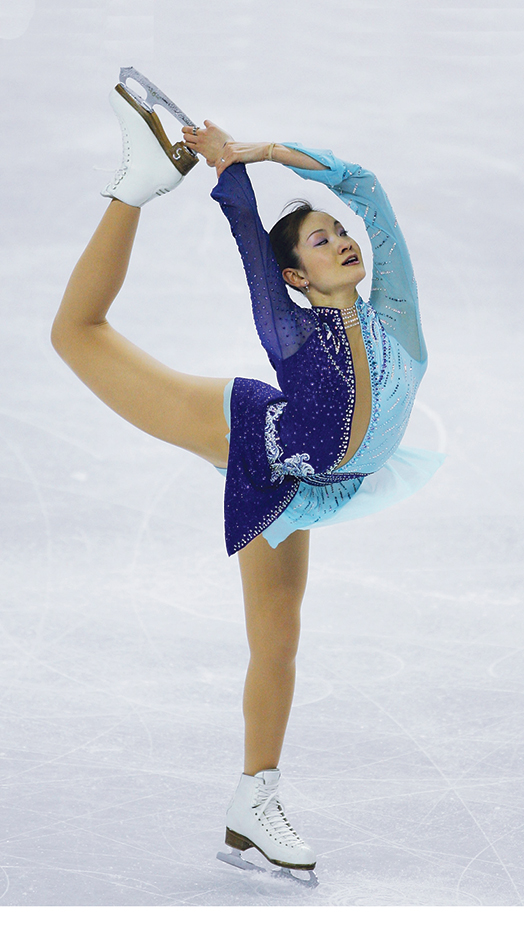
At the 2010 Winter Olympics in Vancouver, Canada, the United States won 37 total medals. Canada won 14 gold medals. Two Norwegian cross-country skiers were the leading medal winners. Petter Northug won four medals in men’s competition, and Marit Bjoergen won five medals in women’s competition.
At the 2012 Summer Olympics in London, the United States and China led all nations in medals as they did in 2008, with the United States winning 104 and China, 91. Michael Phelps and Usain Bolt repeated as the biggest stars of the Summer Games. Phelps won 6 medals, including 4 gold medals. Bolt won gold medals in the 100-meter and 200-meter races, thus becoming the first athlete to win both sprints at consecutive Olympic Games.
At the 2014 Winter Games in Sochi, Russia, the host Russian team led all nations with 29 total medals and 10 gold medals. The Canadian men’s and women’s ice hockey and curling teams swept all four gold medals. Norwegian biathlon star Ole Einar Bjoerndalen won two gold medals, bringing his career total to 13, an individual record for the Winter Games. The Netherlands won 23 of the 36 speedskating medals, including 8 gold medals. 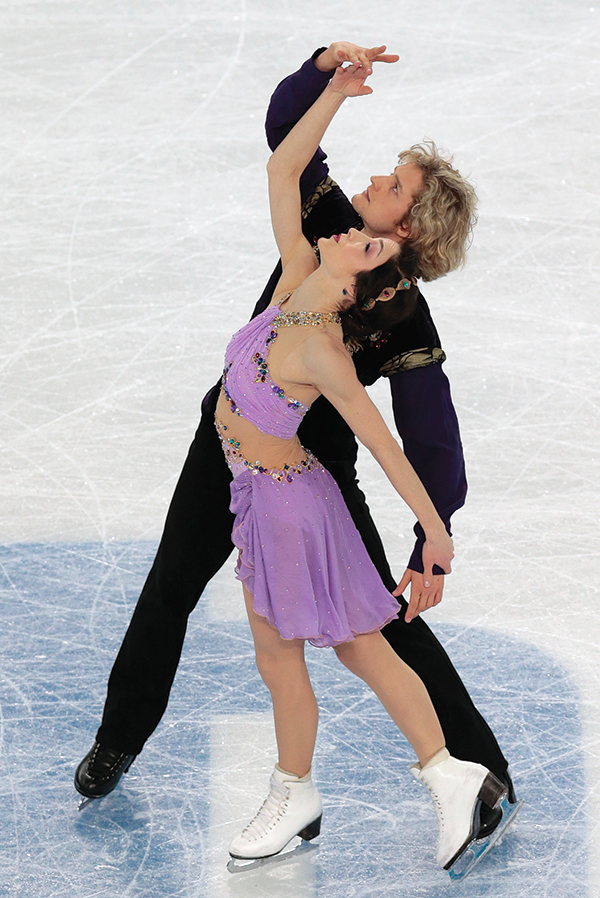
Doping scandal.
The 2016 Summer Games were held in Rio de Janeiro, Brazil. Before the games began, the Olympic movement was rocked by the revelation of a massive doping operation involving Russian government agencies during the 2014 Winter Games. The IOC banned 118 Russian athletes from the 2016 Summer Games after retests of their drug screenings showed that their previous performances were also tainted by performance-enhancing drugs. This scandal followed revelations made earlier in the 2000’s that massive doping had affected the results of the 2008 and 2012 Summer Games. Based on continual reports of doping confirmations, the Olympic Committee stripped dozens of athletes of their medals and awarded them to other athletes who had finished behind them.
During the 2016 Summer Games, Usain Bolt won gold medals in the 100-meter and 200-meter sprints and as a member of Jamaica’s 4×100-meter relay team. Michael Phelps added to his Olympic record medal count by winning 6 medals—5 of them gold—to increase his career total to a record 28 medals, a record 23 of them gold. Other swimming stars were Katie Ledecky of the United States with 4 gold medals and Katinka Hosszú of Hungary with 3 gold medals.
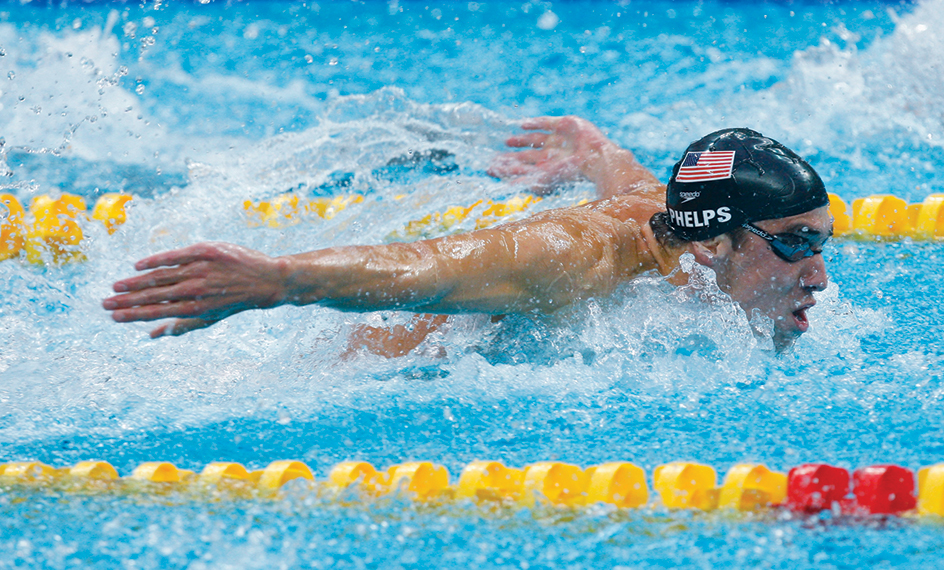
American gymnast Simone Biles led the women’s competition with 4 gold medals. Japanese gymnast Kohei Uchimura strengthened his reputation as perhaps the greatest male gymnast in the history of the sport by winning with his gold medal performances in the team event and the all-around event. The American men’s and women’s basketball teams repeated as Olympic champions. The United States led all nations with 121 medals. China ranked second with 70.
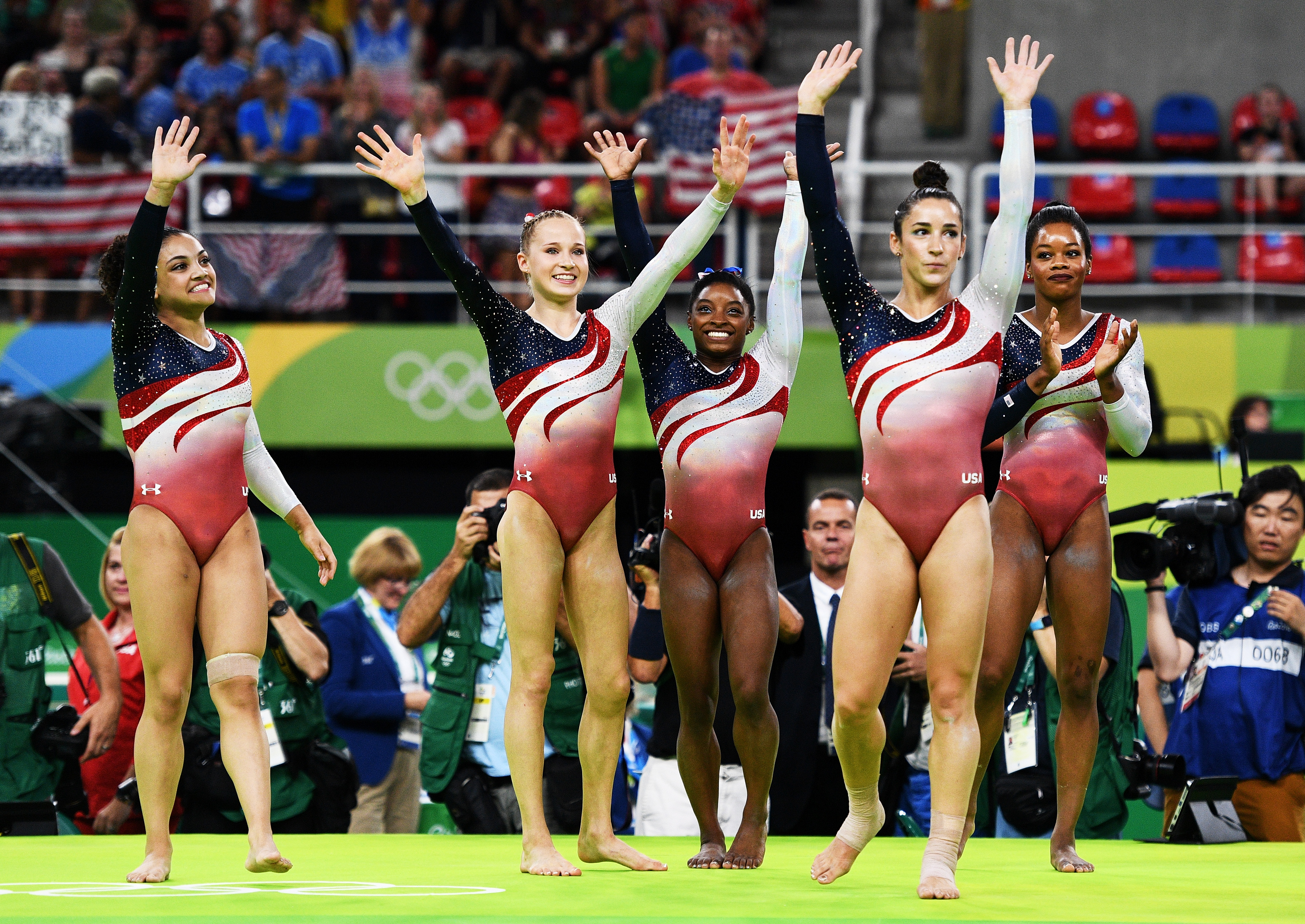
In 2017, the IOC banned Russia from participating in the 2018 Winter Games. The ban was the result of investigations that uncovered widespread doping and cheating among Russian athletes, coaches, and government officials in previous Olympic Games. Individual Russian athletes were permitted to compete in the 2018 Games if they could prove they had previously competed free of doping. Those athletes competed under the Olympic flag as an “Olympic Athlete from Russia (OAR).”
Under one flag.
Before the 2018 Winter Olympic Games began in Pyeongchang, South Korea, there was concern that problems might arise from the political hostility between South Korea and neighboring North Korea. However, North and South Korean athletes marched into the stadium together during the opening ceremony under a flag depicting a unified Korean peninsula. North and South Korea also united into a single women’s hockey team.
Norway, led by a powerful group of skiers, was the leading medal-winning nation in the 2018 Winter Games with 39 medals, a new Winter Olympic Games record. Germany finished second, with 31; Canada, third, with 29; and the United States, fourth, with 23. The United States became the first nation to earn medals in 11 different sports at the same Winter Games. OAR won 17 medals, including two gold medals. Alina Zagitova won the women’s singles figure skating event, and the OAR team won the men’s hockey competition. The 15-year-old Zagitova was the second youngest women’s figure skater in Olympic history to win the gold medal. 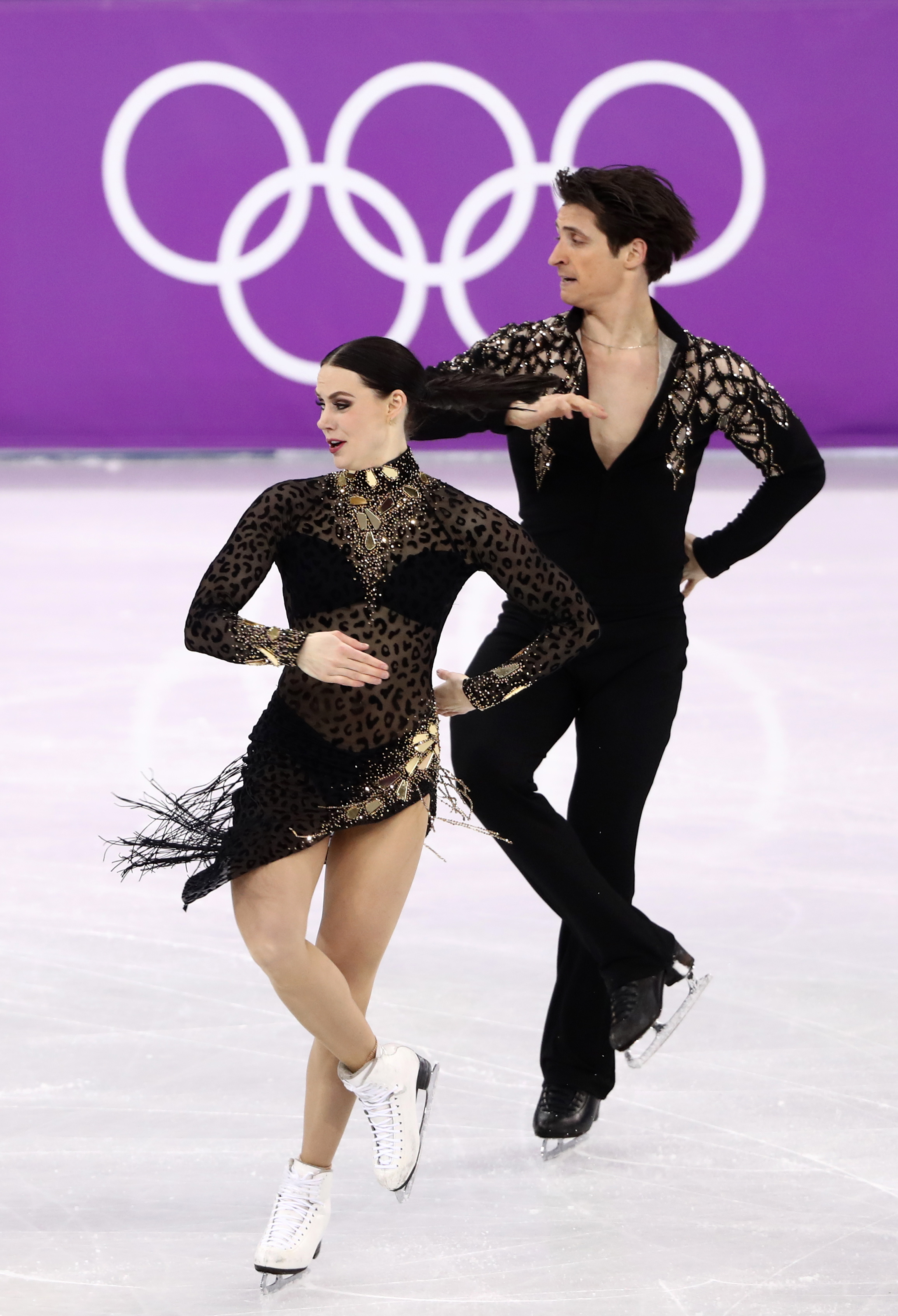
In one of the highlights of the games, the U.S. women’s ice hockey team defeated defending champion Canada 3-2 in a shootout for the gold medal. The United States-Canada women’s hockey rivalry has become one of the most intense in the games. Canada had won four straight gold medals from 2002 to 2014 before the U.S. victory. The Canadian ice dancing team of Tessa Virtue and Scott Moir won the gold medal with a world record score. The pair had previously won the gold medal at the 2010 games and the silver medal in 2014.
The United States took home several gold medals in snowboarding. Chloe Kim lived up to her advance reputation as one of the world’s greatest snowboarders with a dazzling display to capture the women’s halfpipe. Jamie Anderson won the women’s slopestyle, and Red Girard won the men’s slopestyle. Shaun White won the men’s halfpipe, his third gold medal, previously winning in 2006 and 2010. He had finished fourth in 2014.
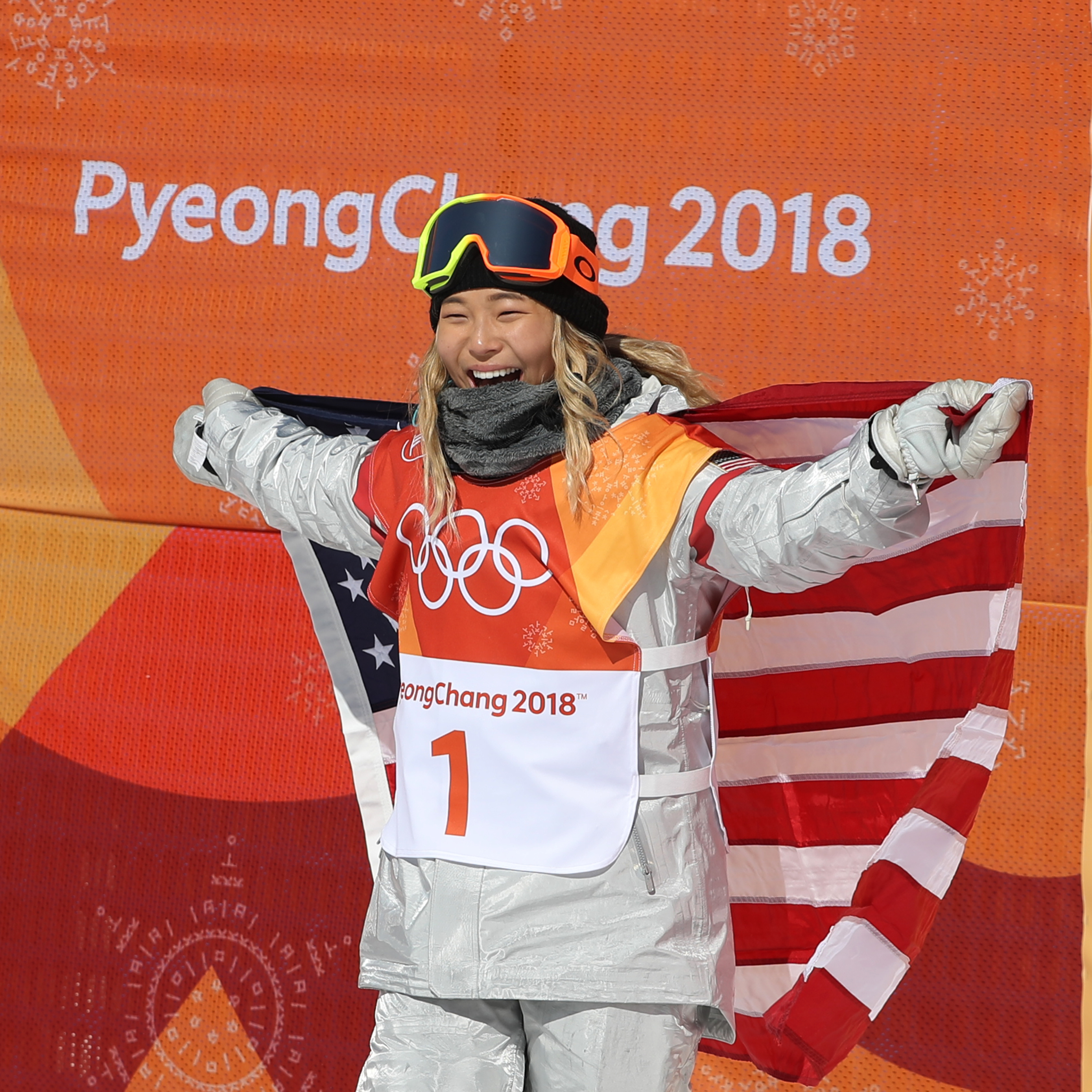
Despite the additional measures taken to prevent doping, two Russian athletes tested positive for banned substances during the games. One was a member of the two-woman bobsled team. The other was a member of the mixed doubles curling team that won the bronze medal. The curling team was stripped of the medal after test results verified the doping.
Games of the 2020’s.
In 2016, the IOC voted to add six sports to the 2020 Summer Olympic Games in Tokyo, Japan—baseball, karate, surfing, skateboarding, softball, and sport climbing. The 2020 Summer Olympic Games were the first Olympics in which athletes competed in karate, skateboarding, sports climbing, and surfing. In 2017, the IOC added 15 additional events to the 2020 Summer Games, in archery, basketball, cycling, judo, swimming, table tennis, track and field, and triathlon. Many of these events had mixed male and female participants for the first time in Olympic competition.
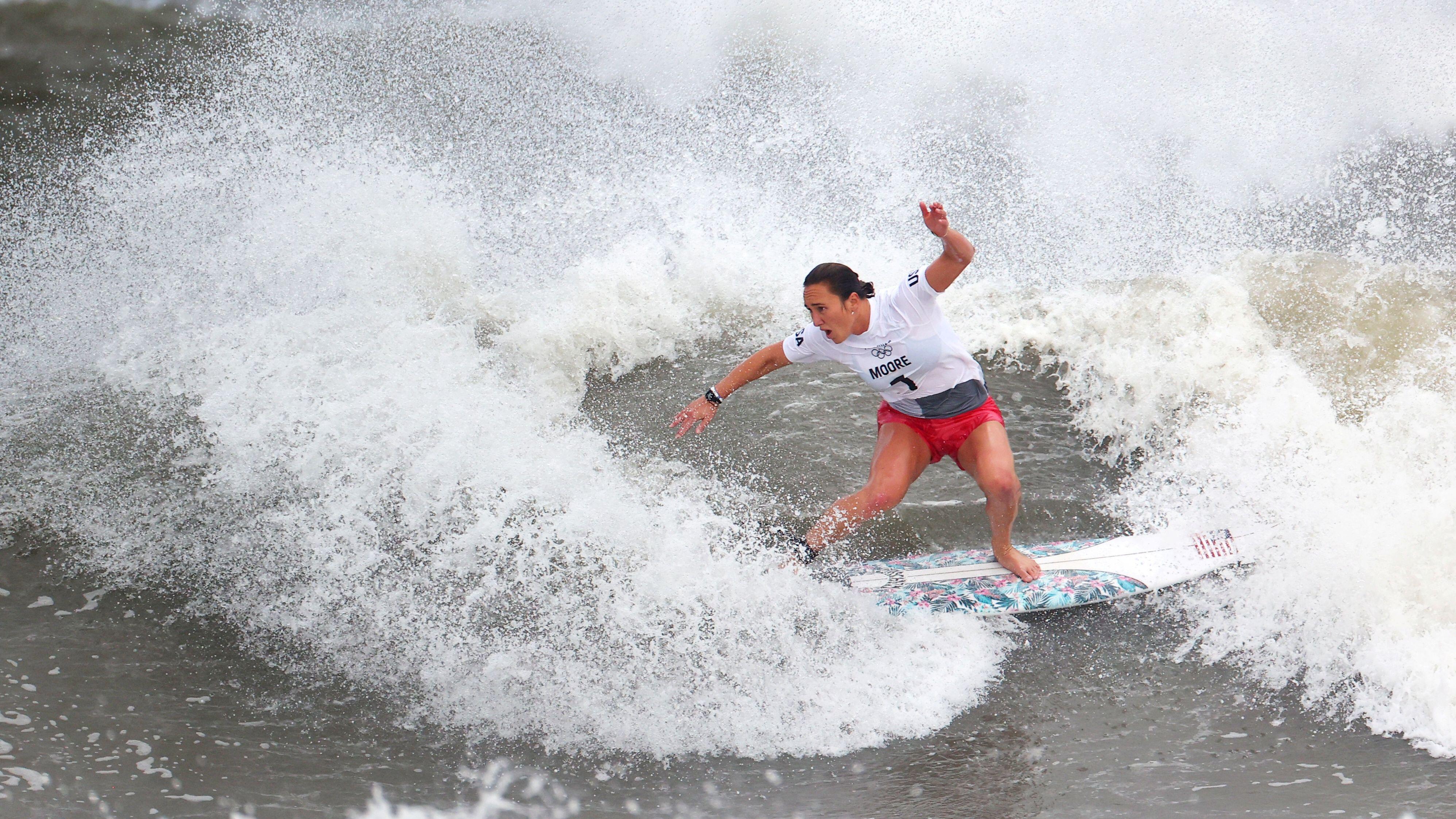
Because of continued evidence of doping by some Russian athletes, in 2020, the Court of Arbitration for Sport allowed the World Anti-Doping Agency to ban Russia from competing in the 2020 Summer Olympic Games and the 2022 Winter Olympic Games. Russian athletes who were not involved in doping were allowed to compete during the 2020 Summer Games as the “Russian Olympic Committee (ROC).” However, they were not permitted to display the Russian flag on their uniforms, and the Russian national anthem was not played when they won a gold medal.
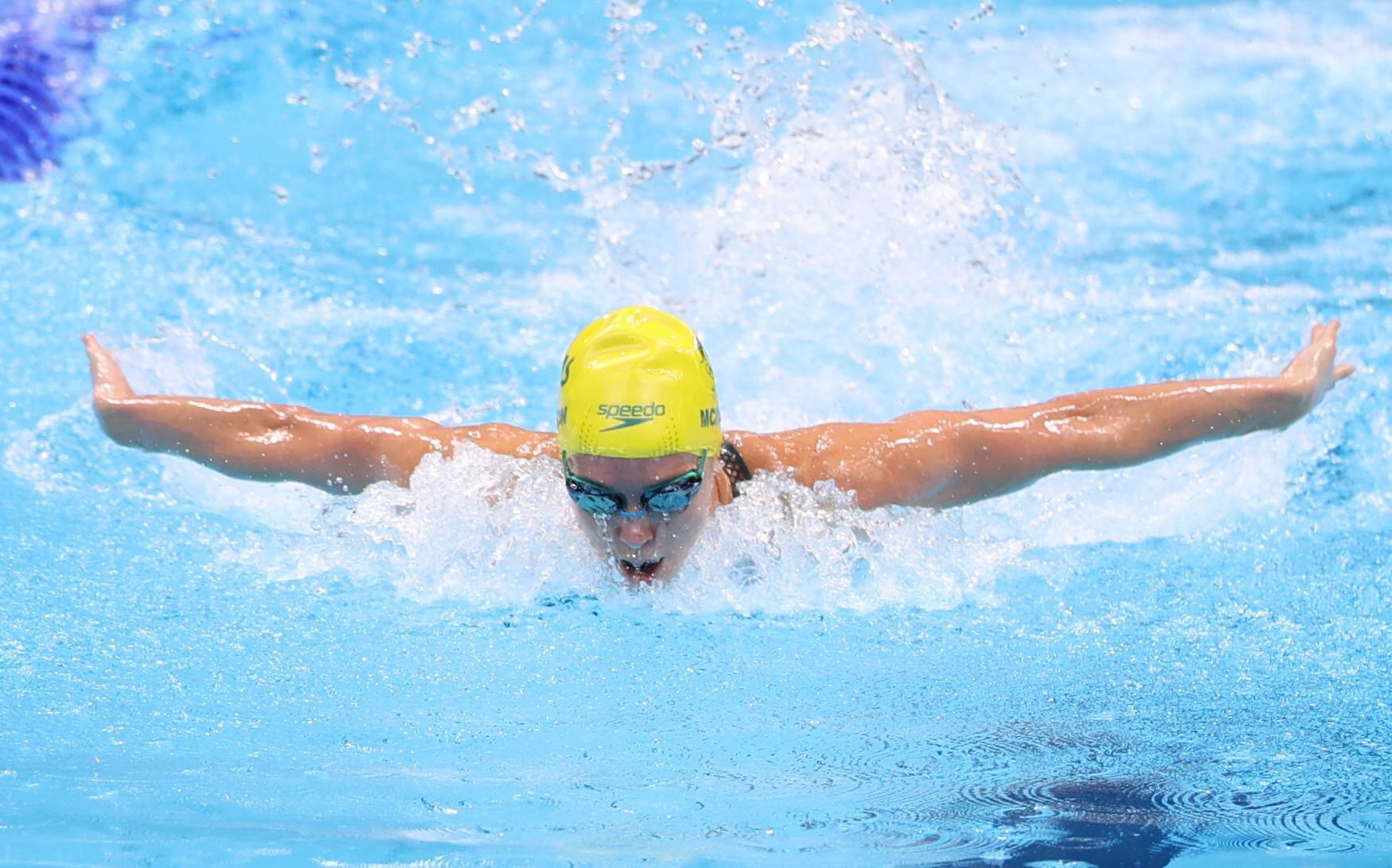
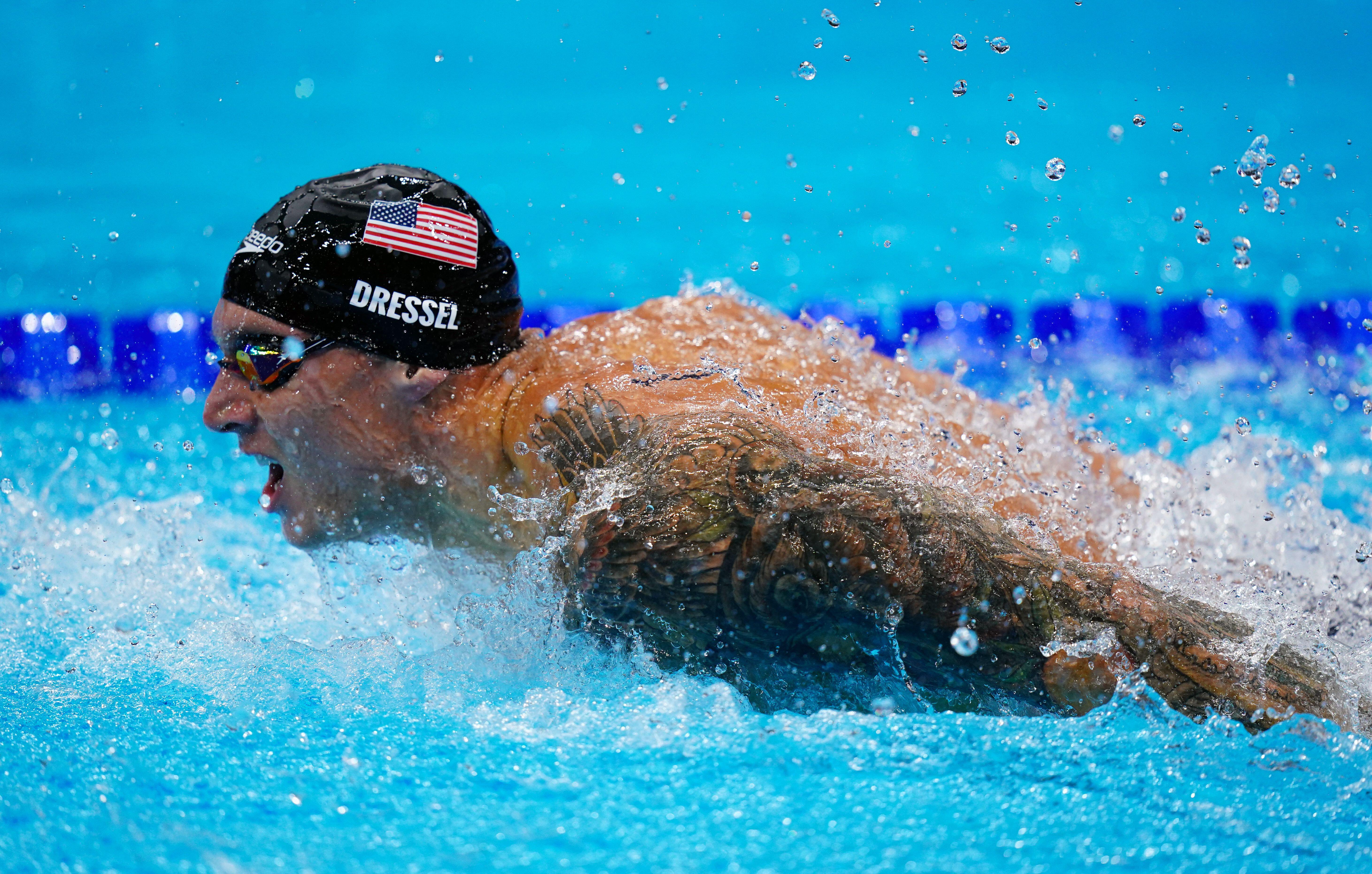
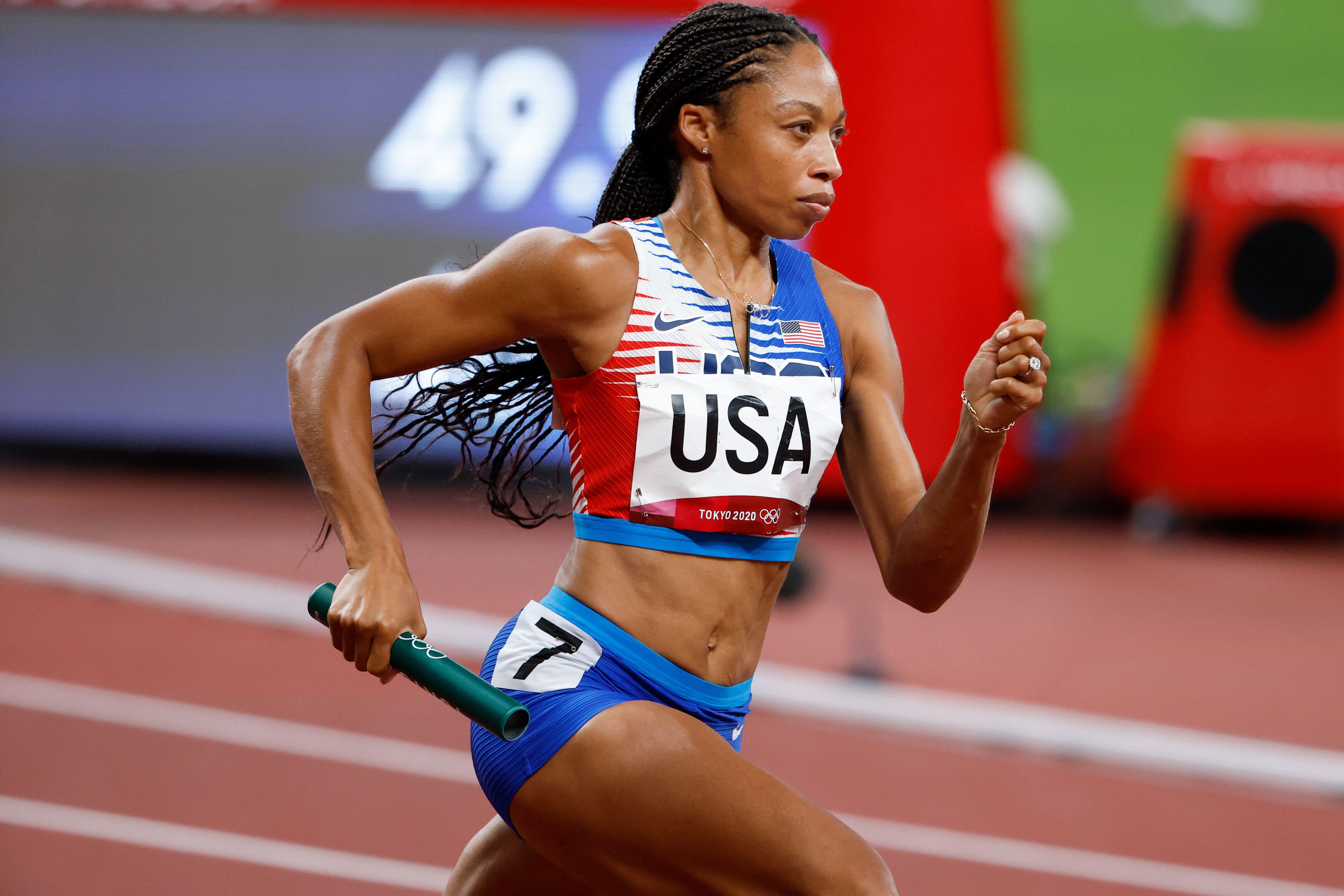
The 2020 Summer Games were postponed in early 2020 as a respiratory disease called COVID-19 spread throughout the world. The IOC announced that the games, rescheduled to the summer of 2021, would still be called the 2020 Summer Olympic Games. The postponement marked the first time the Olympics had ever been rescheduled during peacetime. To help prevent the spread of COVID-19, spectators were not allowed to attend the events.
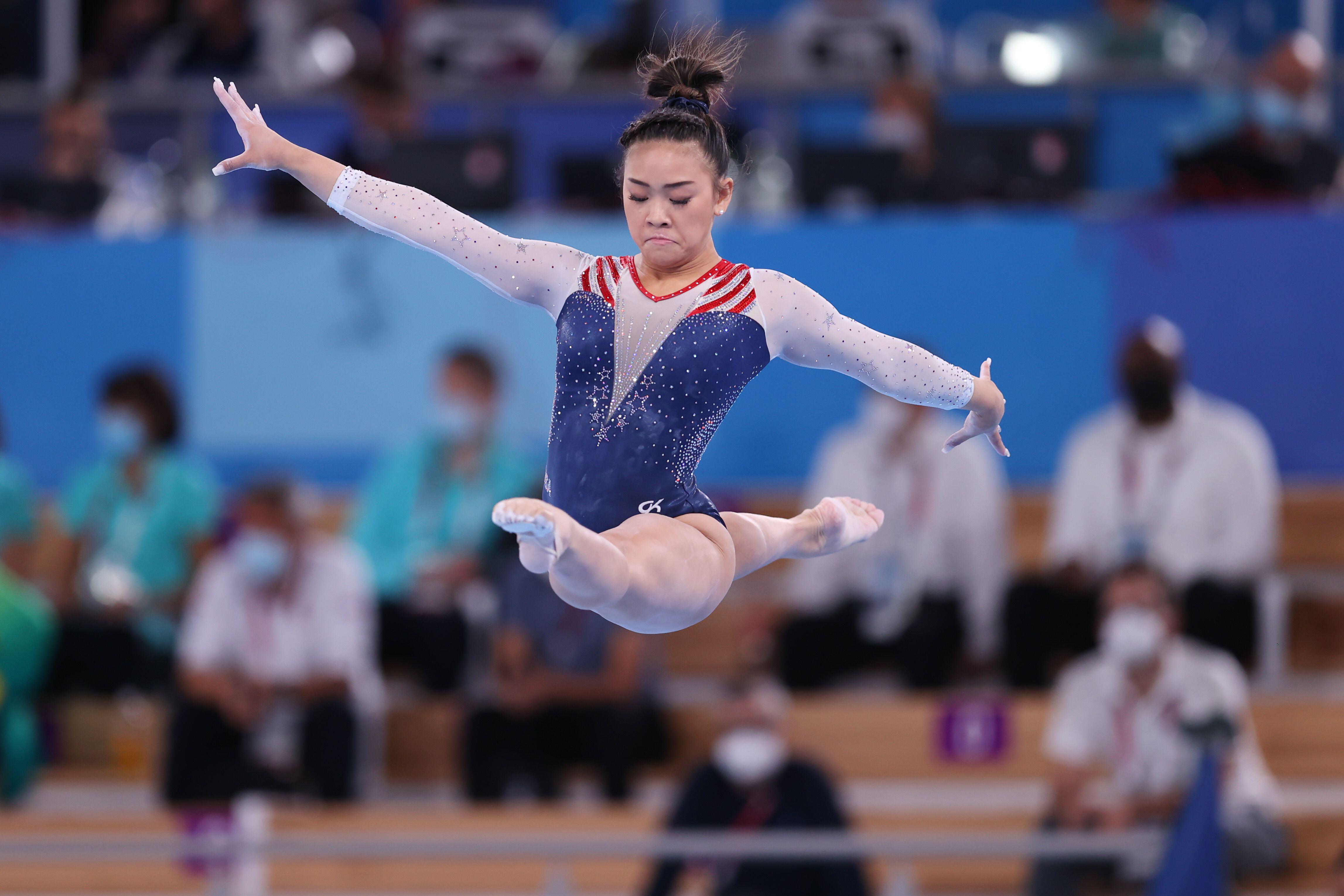
At the 2020 Summer Games, the United States led all nations with 113 medals, 39 of them gold. China ranked second with 88 medals, 38 of them gold. Host nation Japan won 58 medals, the most Japan had ever won. A record 93 countries and territories won at least one medal. Australian swimmer Emma McKeon won the most total medals—seven. McKeon became only the second woman to win seven medals at a single Olympic Games. Maria Gorokhovskaya, a gymnast from the Soviet Union, won seven medals in 1952. American swimmer Caeleb Dressel won the most gold medals—five. American sprinter Allyson Felix won two medals, bringing her career total to eleven, more than any other American track and field athlete. Gymnast Sunisa Lee became the first Hmong American to win a gold medal. Weightlifter Hidilyn Diaz of the Philippines won her country’s first gold medal.
Norway was the leading medal-winning nation in the 2022 Winter Games, with 37 medals. Norway won 16 gold medals, setting a Winter Olympic Games record. The ROC finished second, with 32 total medals; and Germany finished third, with 27. Host nation China won 15 medals, the most China had ever won at a single Winter Olympics. Three athletes, Norwegian biathletes Johannes Thingnes Bø and Marte Olsbu Røiseland and ROC cross-country skier Alexander Bolshunov, each won five medals. No other athlete won as many. Bø won the most gold medals—four.
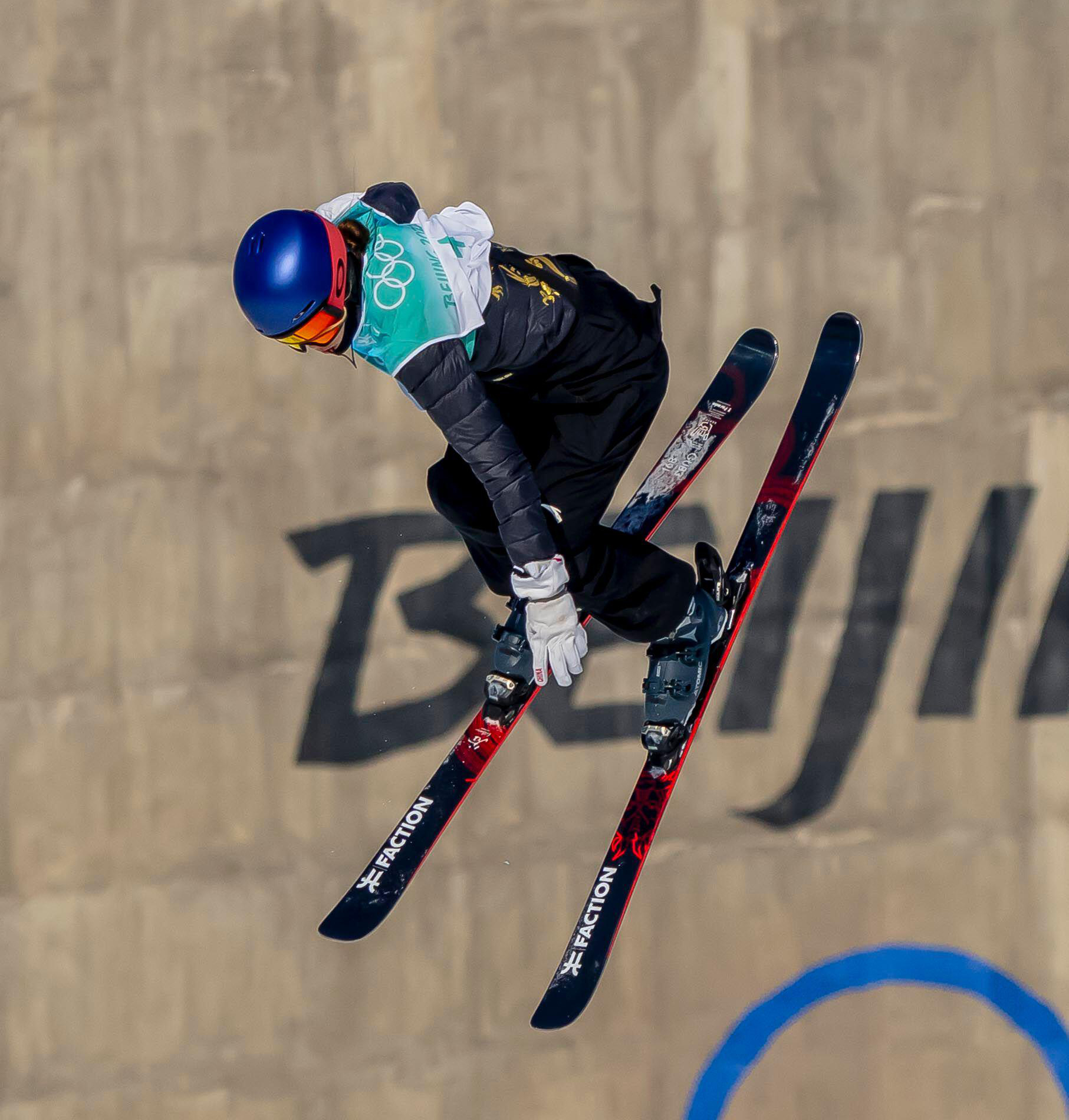
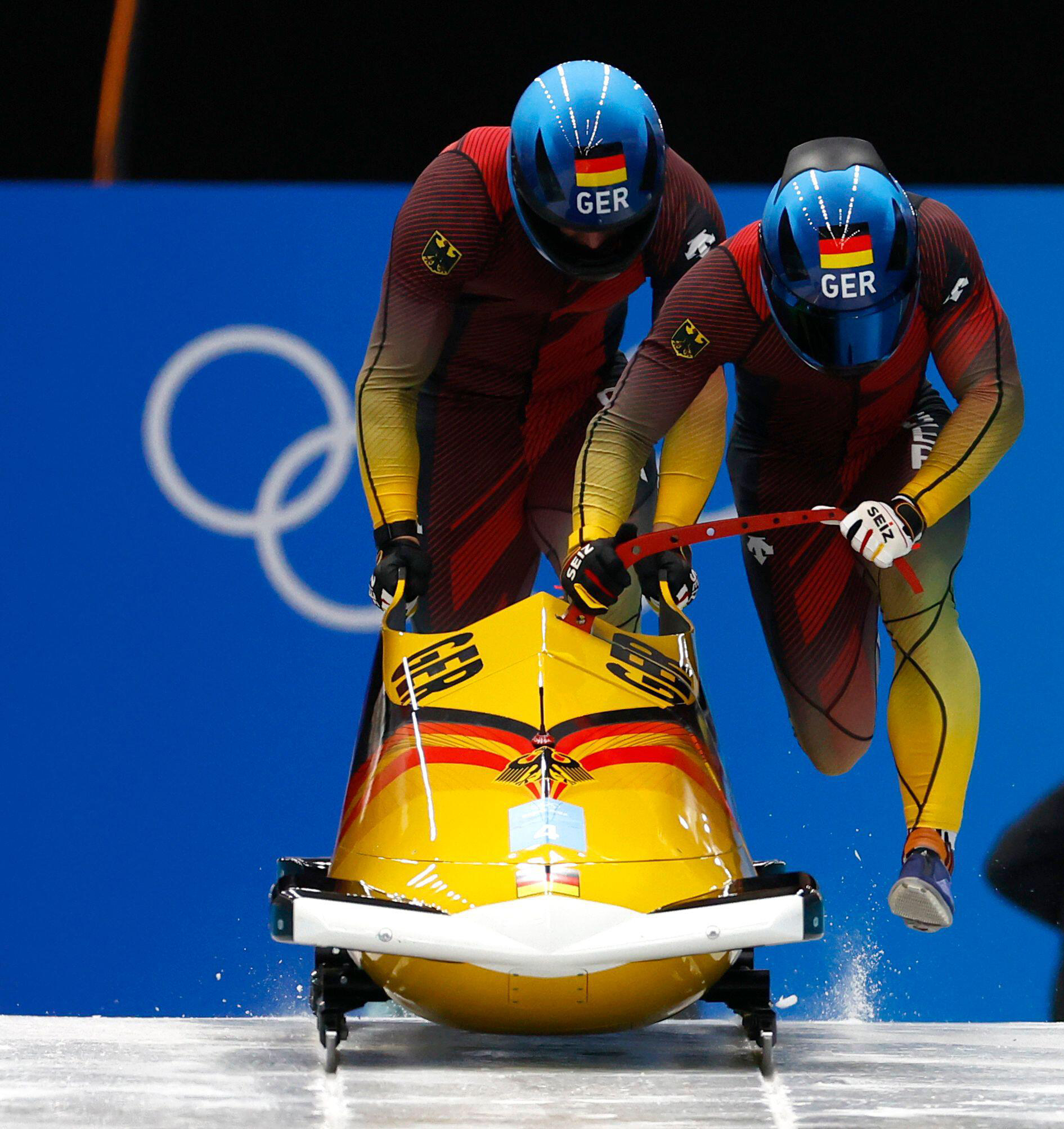
Other notable performances at the 2022 Winter Olympics included those of Dutch speed skater Irene Schouten, who won three gold medals and set two Olympic records in the process. Chinese American freestyle skier Eileen Gu, representing China, became the first freestyle skier to win three medals in a single Olympics. German bobsledder Francesco Friedrich won gold medals in both the two-man and four-man bobsled events. Friedrich became the first person to win both events at two consecutive Winter Olympic Games. American Erin Jackson became the first Black woman to win a medal in speed skating at the Winter Olympics when she won a gold medal in the 500-meter race. New Zealand snowboarder Zoi Sadowski-Synnott won her country’s first gold medal at a Winter Olympic Games. Freestyle skier Nico Porteous later won New Zealand’s second gold medal.
In 2023, the IOC banned athletes from Belarus and Russia from competing in the 2024 Summer Olympics due to Russia’s invasion of Ukraine in 2022. However, the IOC invited athletes from those two countries who met certain requirements to compete as Individual Neutral Athletes (Athlètes Individuels Neutres, or AIN).
The United States was the leading medal-winning nation in the 2024 Summer Games, with 126 medals. China ranked second with 91. The two countries each won 40 gold medals, more than any other country. The nations of Albania, Cabo Verde, Dominica, and Saint Lucia all won their first-ever Olympic medals. One new sport—breaking (also called break dancing)—was added to the program.
Chinese swimmer Zhang Yufei won the most medals (6) at the 2024 Summer Olympics. French swimmer Léon Marchand won the most gold medals (4). American swimmer Katie Ledecky won 4 medals—2 of them gold—raising her career total to 14 medals, 9 of them gold. Both of these totals are Olympic records for female American athletes. Serbian tennis champion Novak Djokovic won his first Olympic gold medal.
